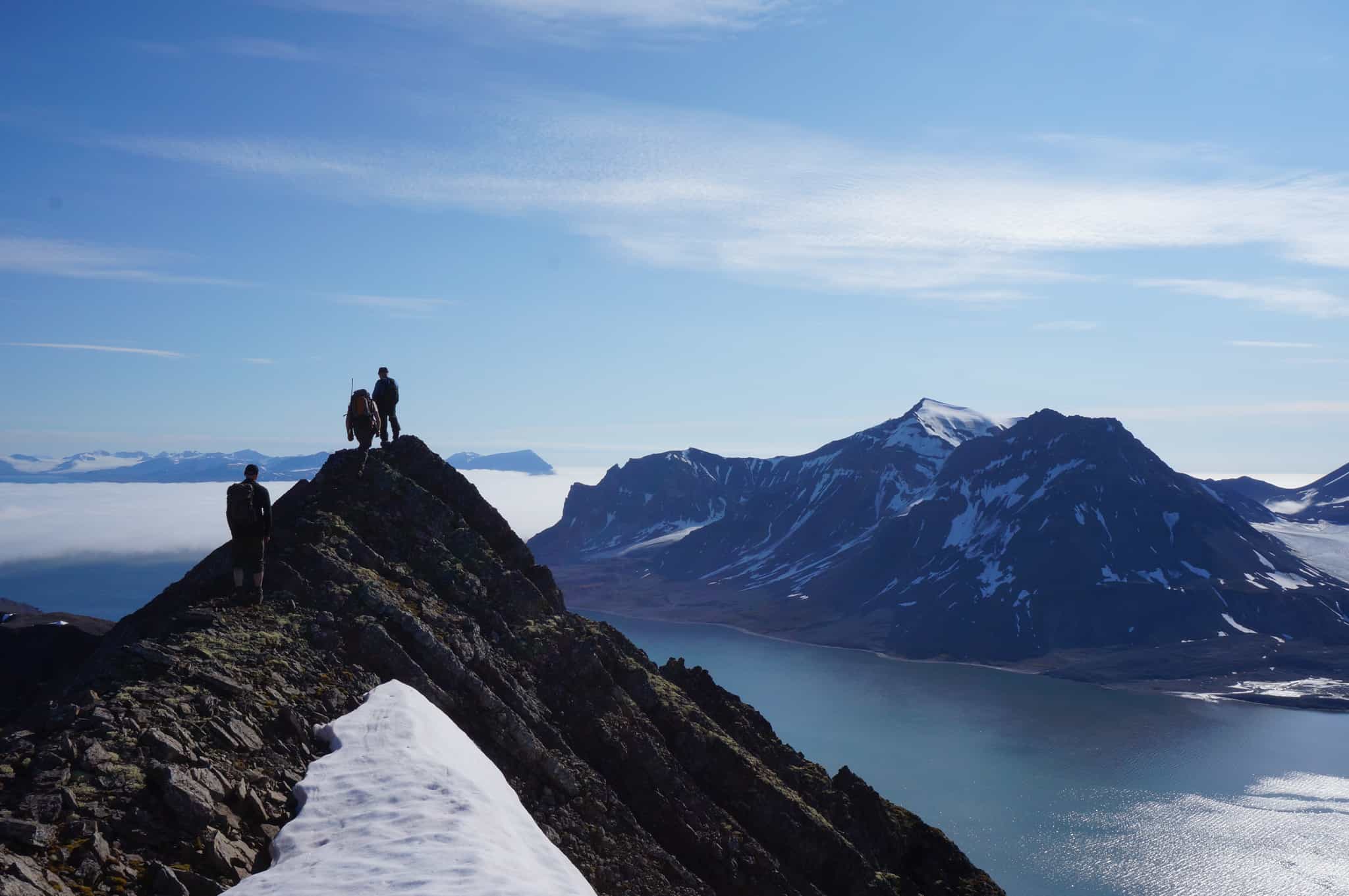
What's Included?
Activities & Certified Guides
All itinerary activities with expert, local, English-speaking guidesHotel & Camping
4 nights in a guesthouse, 3 nights at a wilderness campMeals
All breakfasts, 6 lunches, 3 dinnersEquipment
Everything you need to camp, kayak and glacier hikePermits
All permits and entry feesSmall Like-minded Groups
Solo-friendly by design, join our small n’ sociable groups of up to 10 like-minded, active and outdoorsy people…
…
What's it like?






























Kayak beside majestic walls of ice – looking out for seals, whales and walruses – and clamber across the Esmark Glacier
Hike amongst towering fjords and to the top of Fuglefjella, known for its epic seabird colonies, on a true Arctic adventure
Take turns on polar bear watch, camp out in the wilderness and brave the ‘polar plunge' – a (quick) dip in the Arctic Ocean
Key Information
Day 1
Arrive in Longyearbyen
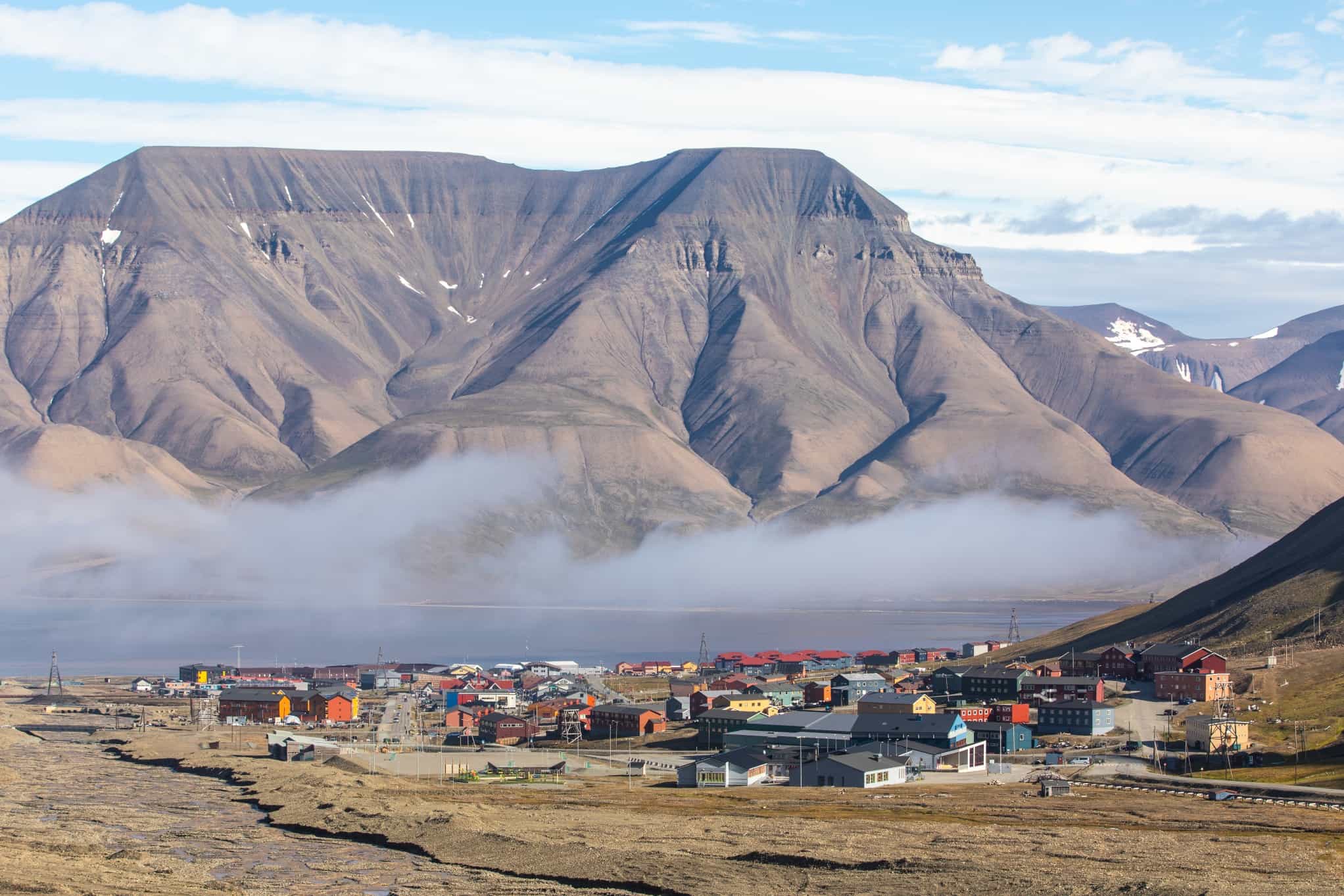
Touch down in Svalbard – home to Longyearbyen, the world's northernmost city – and get your first glimpse of the Norwegian Arctic. The rest of the day is yours to explore and there are plenty of daylight hours to do so: 24 to be exact! The streets in Longyearbyen have no names, cats are completely banned and reindeer wander freely through the town. Join the rest of the group for a briefing, then grab some dinner in a local restaurant (dinner isn't included today, but your host will book a table for the group so you can get acquainted).
If you arrive early there's plenty to enjoy in Longyearbyen before your trip starts; see the FAQs and Optional Extras below for more information.
Day 2
Get your first taste of hiking in the Arctic
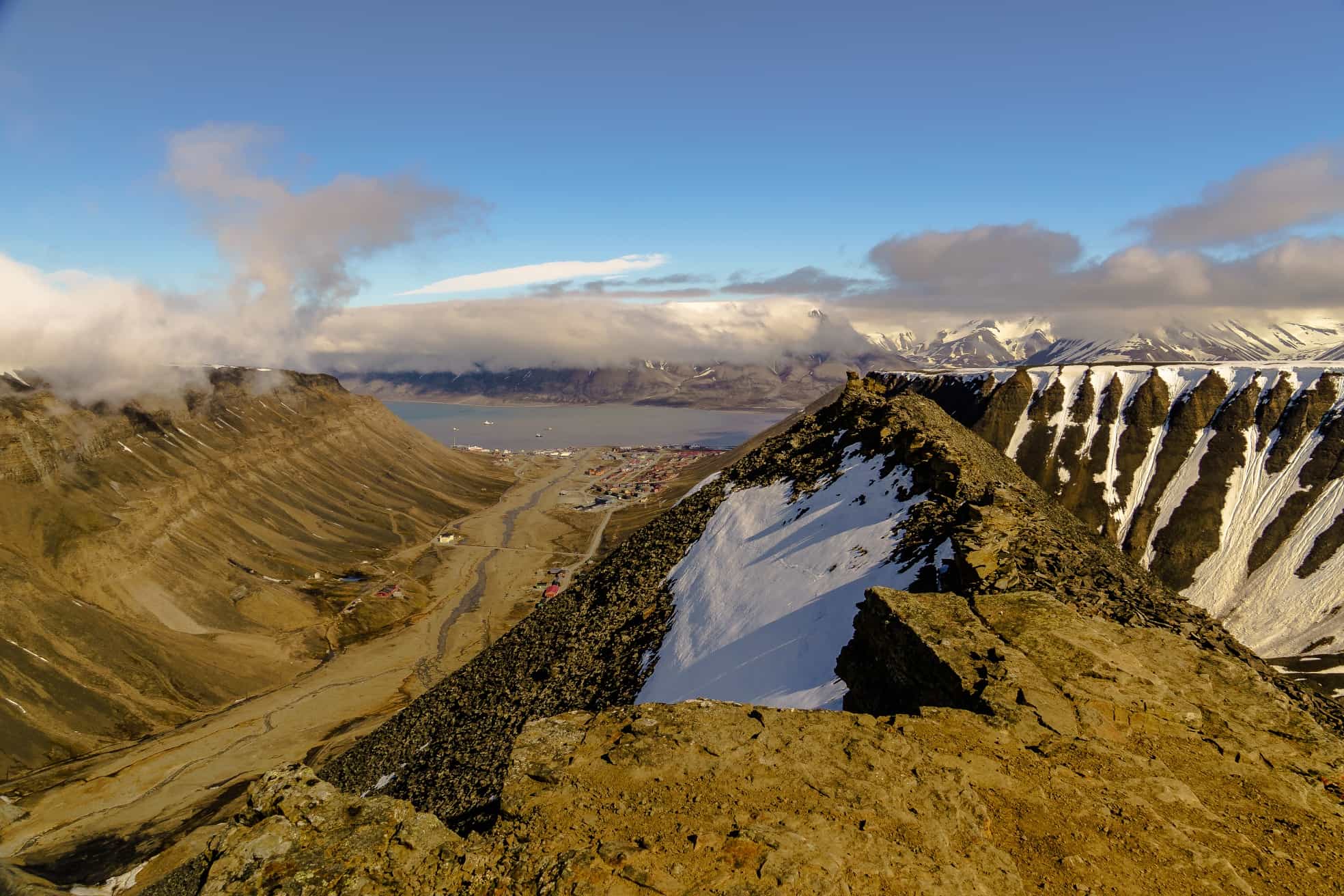
Hiking
Lace up your boots to hike up Sarkofagen Mountain, where you will experience the perfect silence of the Arctic. Enjoy the spectacular views over Longyearbyen, with mountains and glaciers as far as the eye can see, before hiking back down in time for dinner and a good night's rest.
Day 3
Ymerbukta Wilderness Camp and the Esmark Glacier
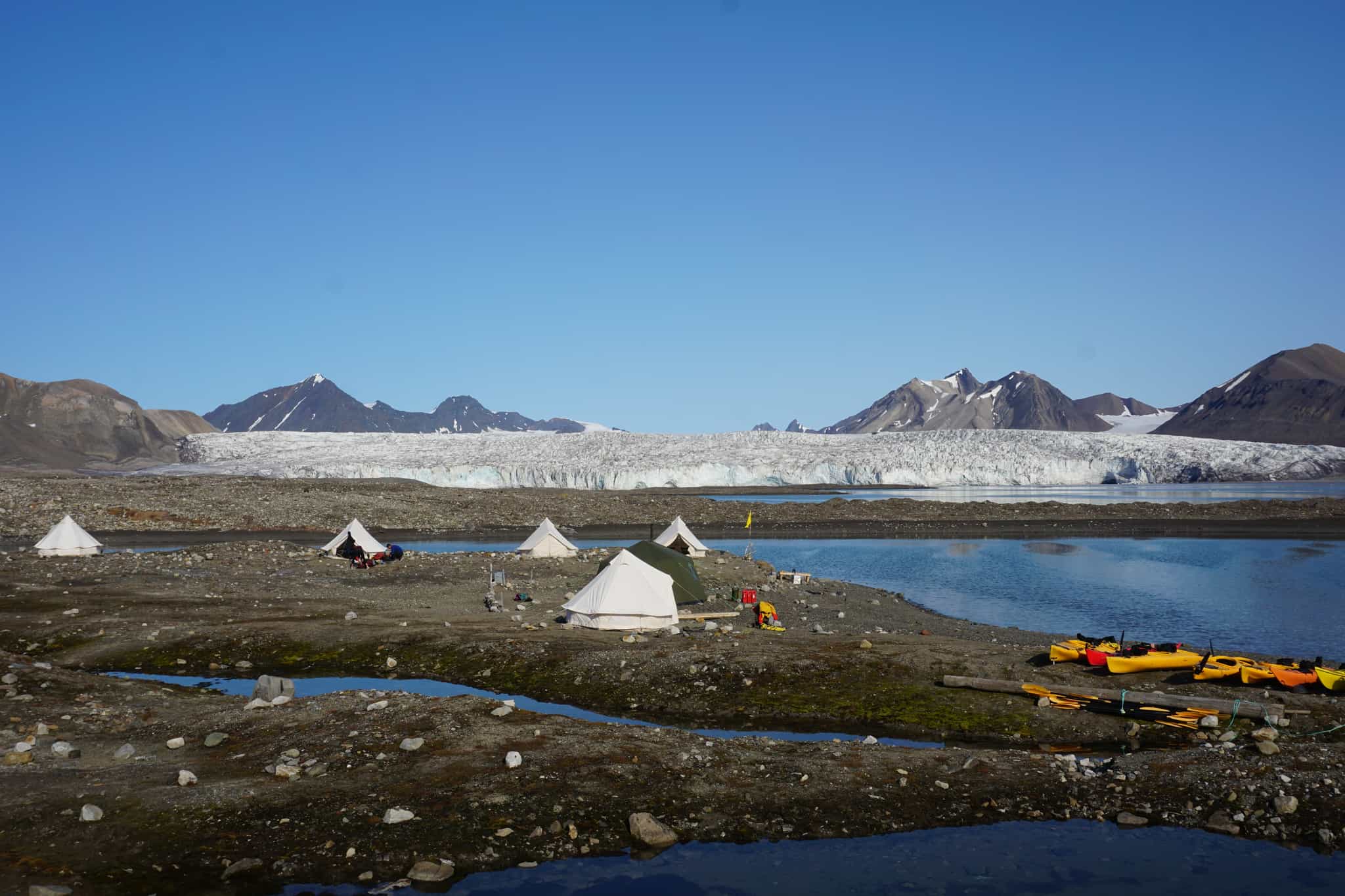
Kayaking
The weather in the Arctic can have a big impact: whilst wilderness camping your guides will adjust the plan according to the conditions, so the itinerary as described will remain fluid.
Board a boat to reach the wilderness camp at Ymerbukta – eyes peeled for Arctic wildlife (you may spot polar bears, walruses, seals and up to 13 species of whale – including the blue whale, the largest creature on earth). Settle into camp before embarking on a sea kayaking expedition, providing that conditions are favourable. Hug the shoreline as you make your way to the towering Esmark Glacier. You may even witness the glacier calving, signalled first by a loud, crackling noise like thunder, followed by huge ice falls that create amazing colours and waves in the water. Return to camp, prepare dinner together and end the day around the campfire.
Polar Bear Lookout: Tonight you'll have the unique and unforgettable experience of being on polar bear lookout. After a full safety briefing, keep watch over the silence and stillness of the Arctic wilderness, watching for polar bears in the distance as your fellow adventurers sleep.
Day 4
Glacier hiking
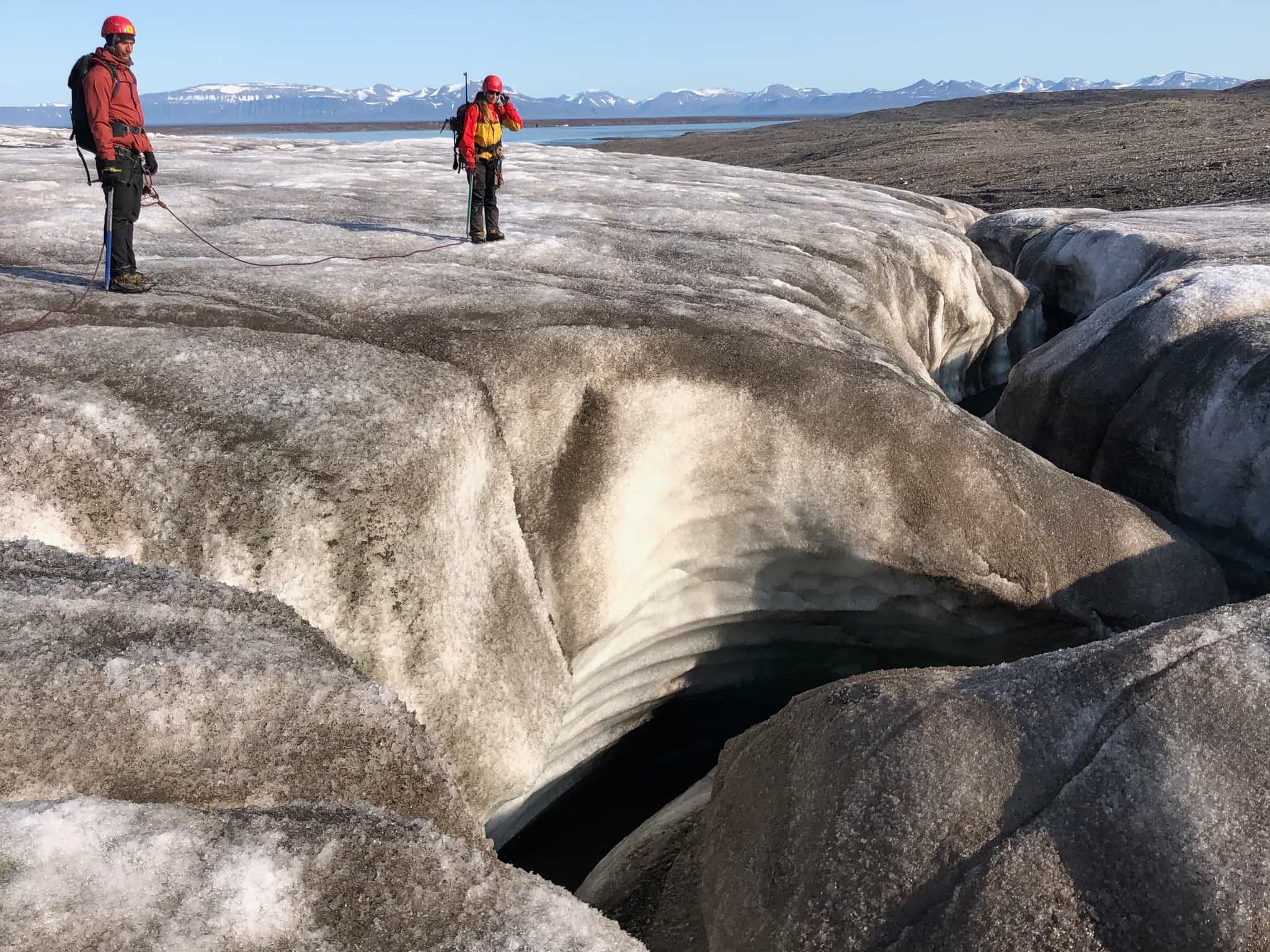
Hiking
After breakfast, you'll get kitted out with a harness and crampons and head out for a full day of hiking on the Esmark Glacier (weather permitting). Navigate untouched ice, deep crevasses and snow bridges, stopping for lunch on the way to take in the views of the fjords and mountains. Back at camp, it’s time for another dinner by the campfire and a chance to reflect on an incredible day, before pulling your next polar bear lookout shift.
Day 5
Wilderness hiking
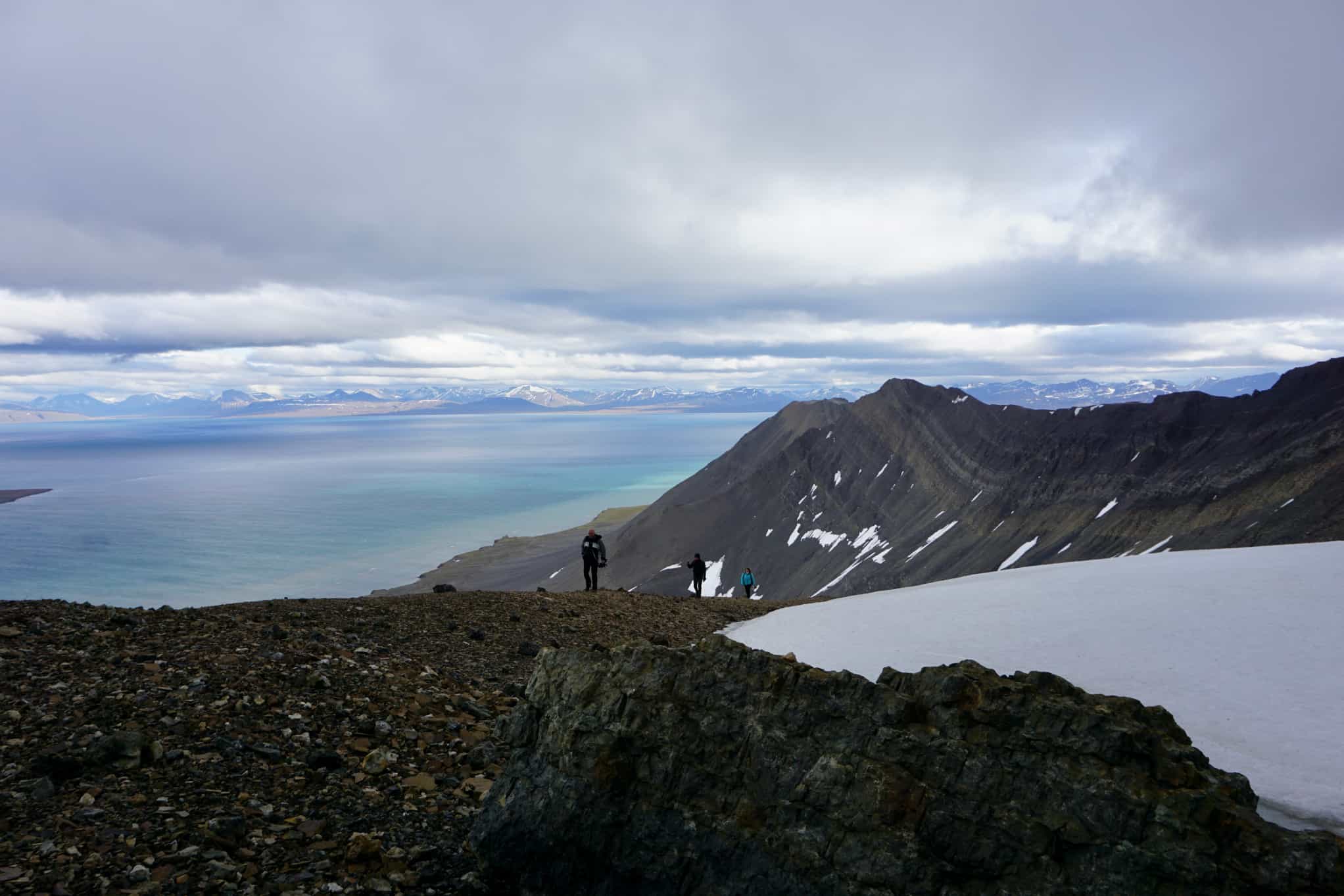
Provided conditions are good you'll hike to the peak of Värmlandsryggen for a full Arctic panorama of fjords, mountains, plains and glaciers. Maybe tonight you'll pluck up the courage to take the 'polar plunge' – a quick dip in the ice-cold waters. Later in the evening, savour your last meal around the campfire and pull another polar bear lookout shift as you soak up the unique place you've called home for the last few days.
Day 6
Back to Longyearbyen
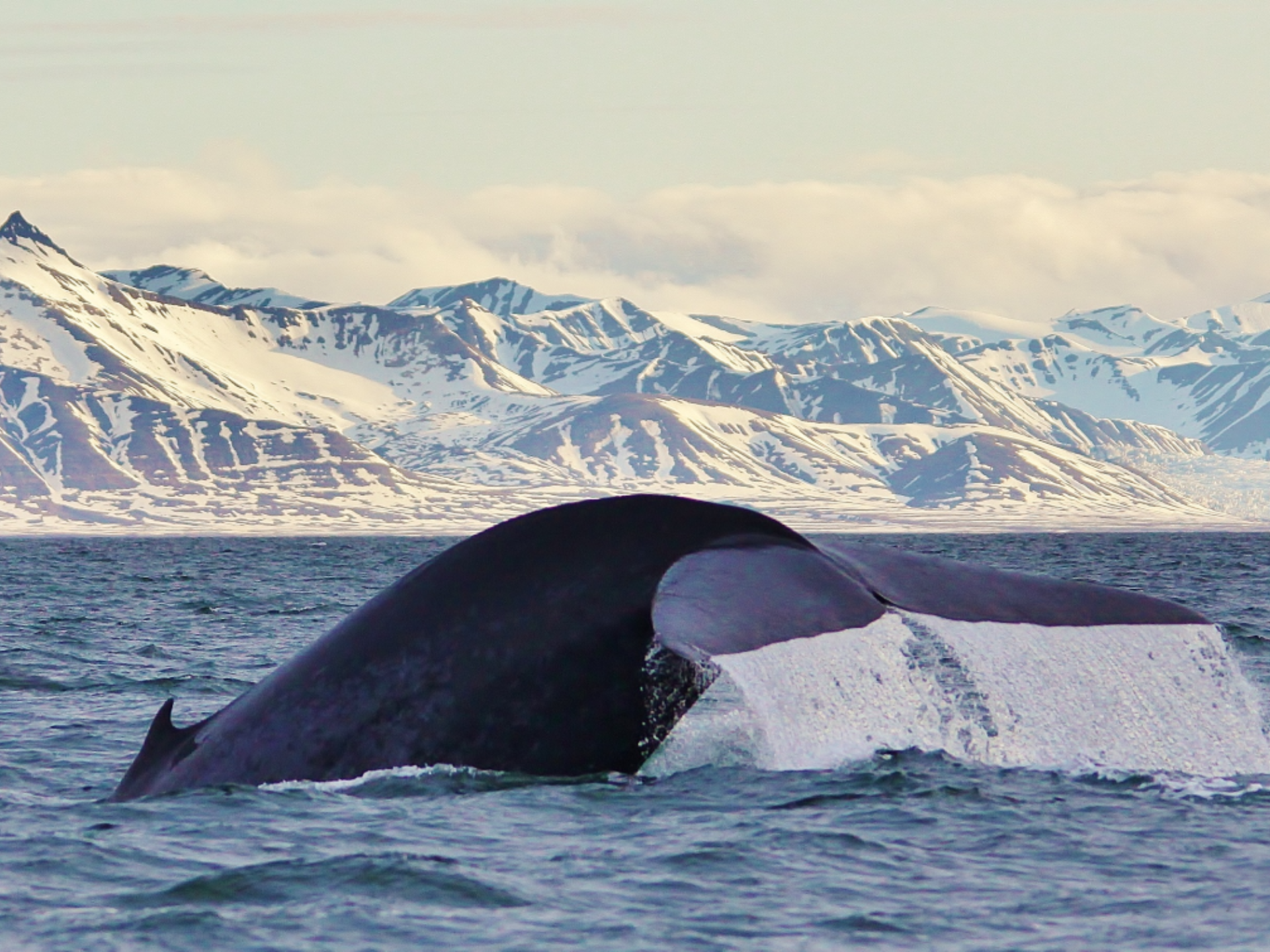
Clear camp, head out for a short hike and then take the boat back to Longyearbyen. From the water, you'll be able to spot the Russian settlement of Barentsburg along the way, also passing by the abandoned mining town of Grumant and a steep cliff home to thousands of nesting sea birds. In Longyearbyen, you can find a local restaurant for dinner and enjoy a night back in civilisation.
Day 7
Hiking the Fuglefjella bird mountains
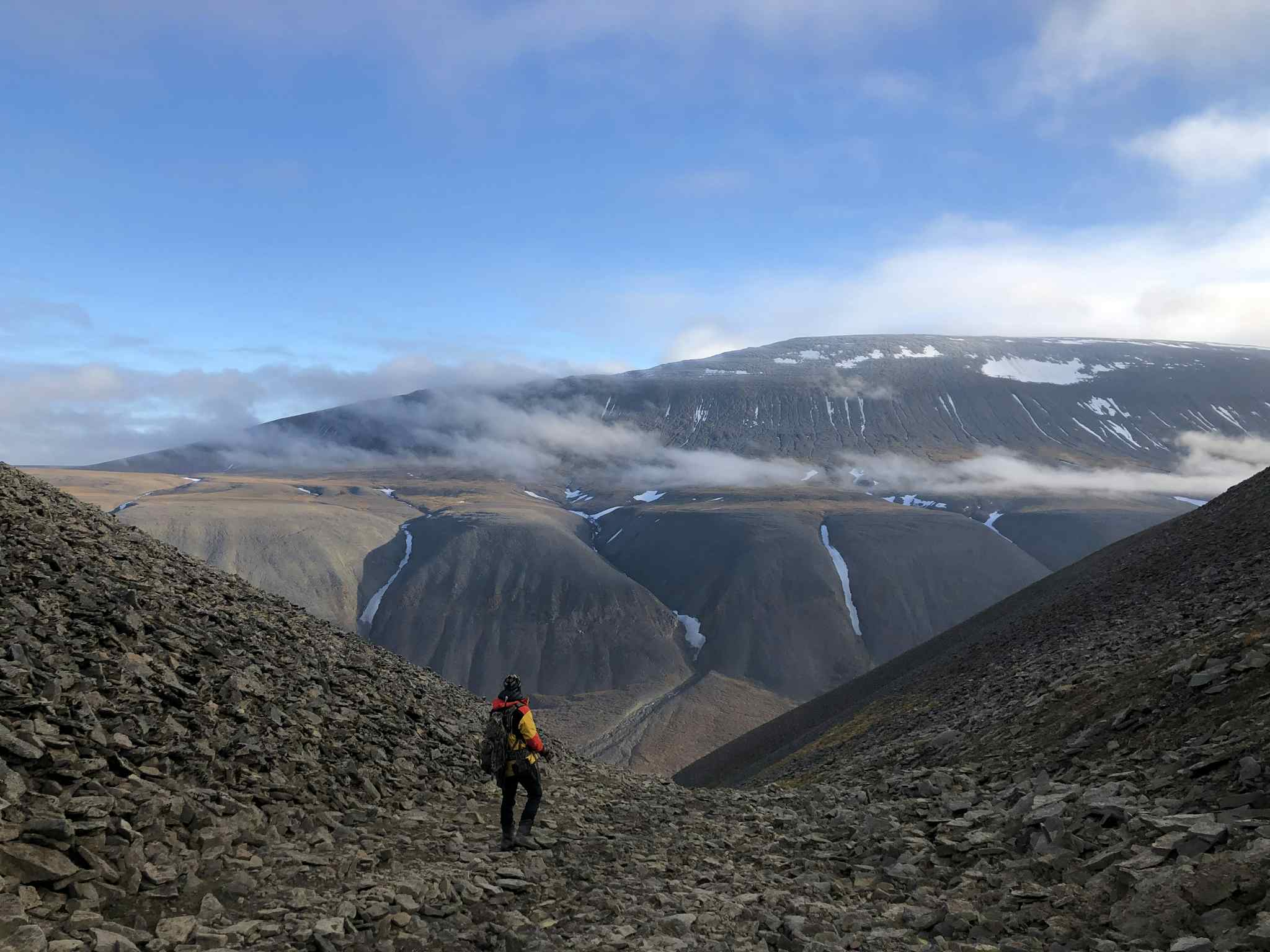
Hiking
After a comfortable night's sleep at Gjestehuset, you'll drive out to Bjørndalen and set foot towards Fuglefjella and Pilarberget – known as the 'bird mountains' thanks to the flocks of birds who nest here during the summer. This spectacle can only be seen in summer, before the birds fly back south in autumn. Hike for a few kilometres, cross a river, then climb steeply up Fuglefjella (look out for reindeer and arctic foxes along the way). Standing atop one of the largest 'bird mountains' in the area, you'll find a wide plateau that plunges into the Isfjorden. On a clear day, you can spot Ymerbukta beyond the fjord.
Day 8
Goodbye, Arctic
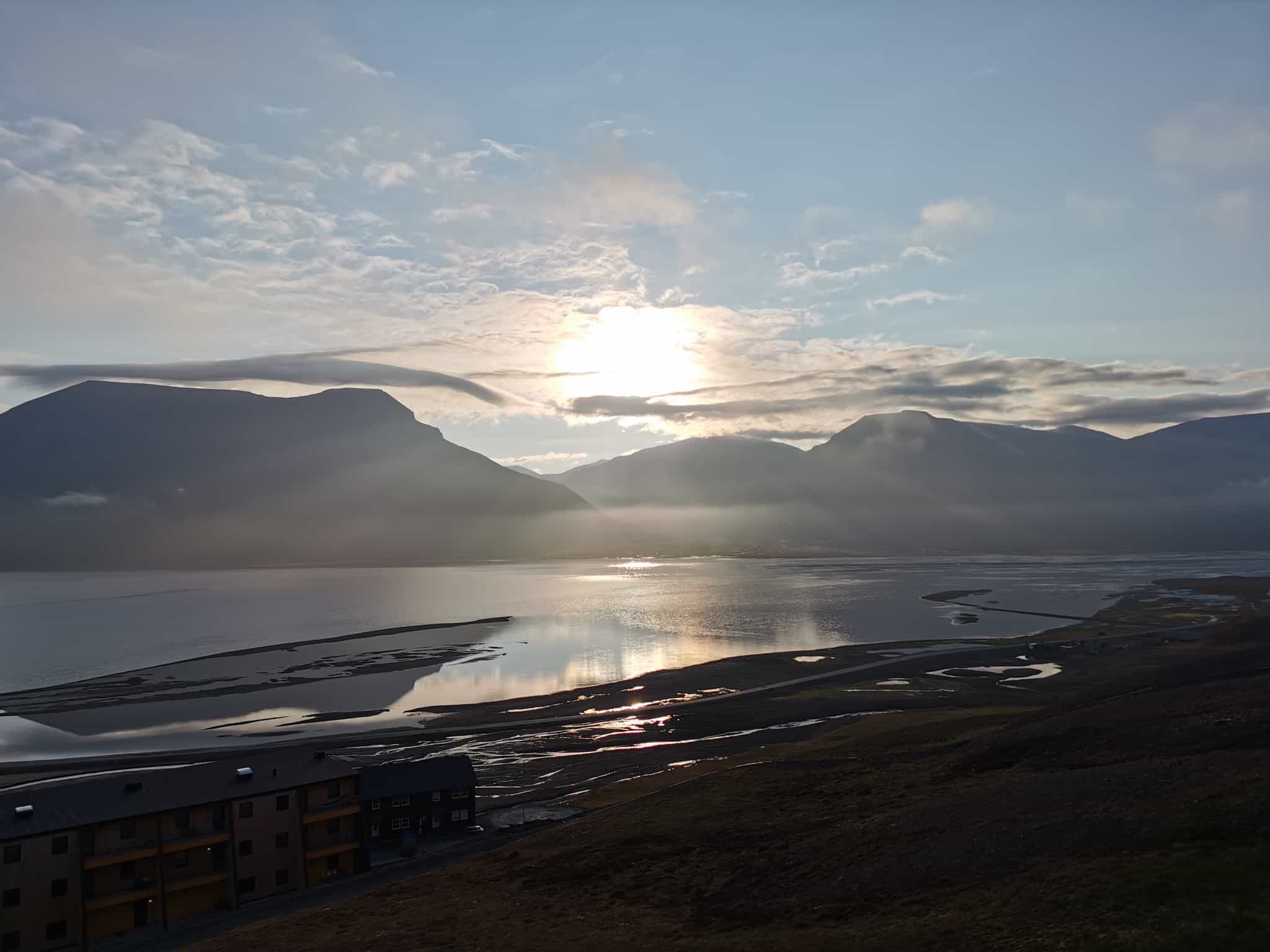
Say farewell to Longyearbyen and the Arctic, returning to Svalbard Airport in time for your flight home.
The Area
Logistics
Starts
Guesthouse in Longyearbyen
Catch any flight on Day 1
Ends
Guesthouse in Longyearbyen
Catch any flight on Day 8
Transfers
The airport shuttle costs around £8/$10 and links up with all flight arrivals and departures. It will take you directly to your guesthouse on Day 1 and get you back to the airport any time on Day 8 for your flight home. It takes a maximum of 10 minutes to get from the airport to your accommodation, and you can pay by credit card (cash is not accepted in Svalbard). For more information, see the Svalbard tourism website.
Travel options
Both Norwegian and SAS offers flights to Svalbard Airport (LYR) in Longyearbyen throughout the summer. We recommend flying to Oslo in Norway and getting a connecting flight from Oslo to Svalbard Airport, which takes around three hours.
On some occasions, there is no same-day flight connection from the UK to Svalbard Airport (LYR) on the tour start date (Sunday). If this is the case, we recommend looking at connecting flights departing a day earlier (Saturday) and booking a pre-tour night in Longyearbyen. Alternatively, you might like to split the journey and spend a night in Oslo en route.
If you arrive early there is plenty to enjoy in Longyearbyen before your trip starts. You can also choose from a range of excursions that can be pre-booked with your host in advance: see FAQs and Optional Extras for more information.
Day 1
Breakfast
Lunch
Dinner
Day 2
Breakfast
Lunch
Dinner
Day 3 – Day 5
Breakfast
Lunch
Dinner
Day 6 – Day 7
Breakfast
Lunch
Dinner
Day 8
Breakfast
Lunch
Dinner
What is the food like?
Longyearbyen has plenty of restaurants for you to explore with international food options, including the world's northernmost sushi bar! At the wilderness camp, breakfasts will consist of bread, ham, cheese, eggs and bacon, cereals or oatmeal, tea, coffee and 'polar bread'. Lunches, meanwhile, will be dry-pack expedition-style lunches, heated on stoves in the wilderness and accompanied by hot drinks and biscuits. You can make extra sandwiches each morning to bring with you if you want a particularly large lunch. Dinners will be homemade and vary depending on what ingredients are available: tacos, pasta or a variety of stews are possibilities (including Norwegian reindeer stew).
Vegans, vegetarians and most food allergies can be catered for, but please let your host know of any dietary requirements in advance. If you have a food allergy or intolerance, please be specific in terms of the severity and whether traces or cross-contamination are an issue.
What is the accommodation like?
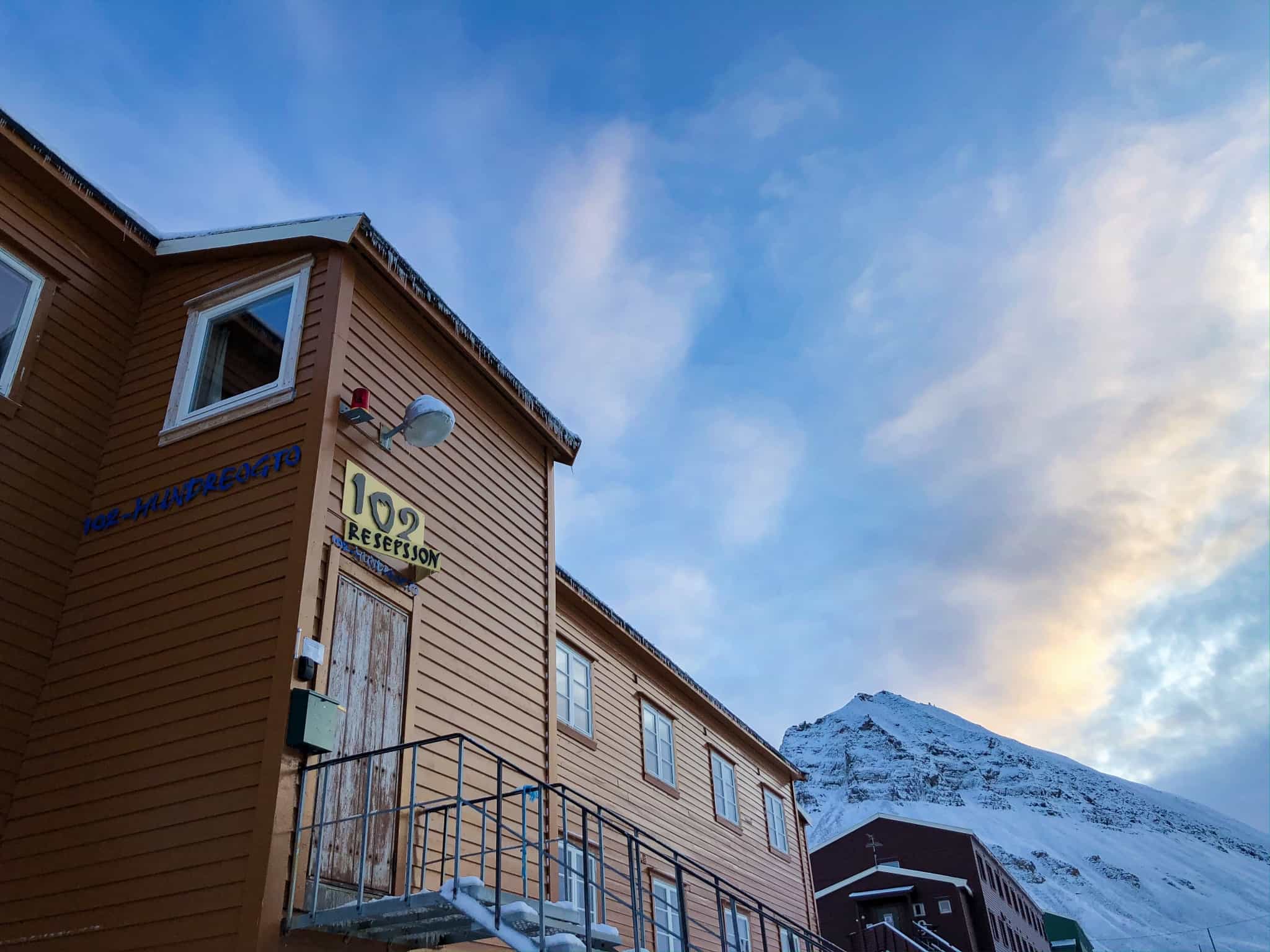
Longyearbyen
You'll stay at Gjestehuset 102, a warm and friendly guesthouse which offers huge breakfasts. Gjestehuset 102 was previously the Millionaires’ Mansion, reserved for the best and most experienced miners. The guesthouse is just a 15-minute walk out of town, and there is also an excellent restaurant opposite.
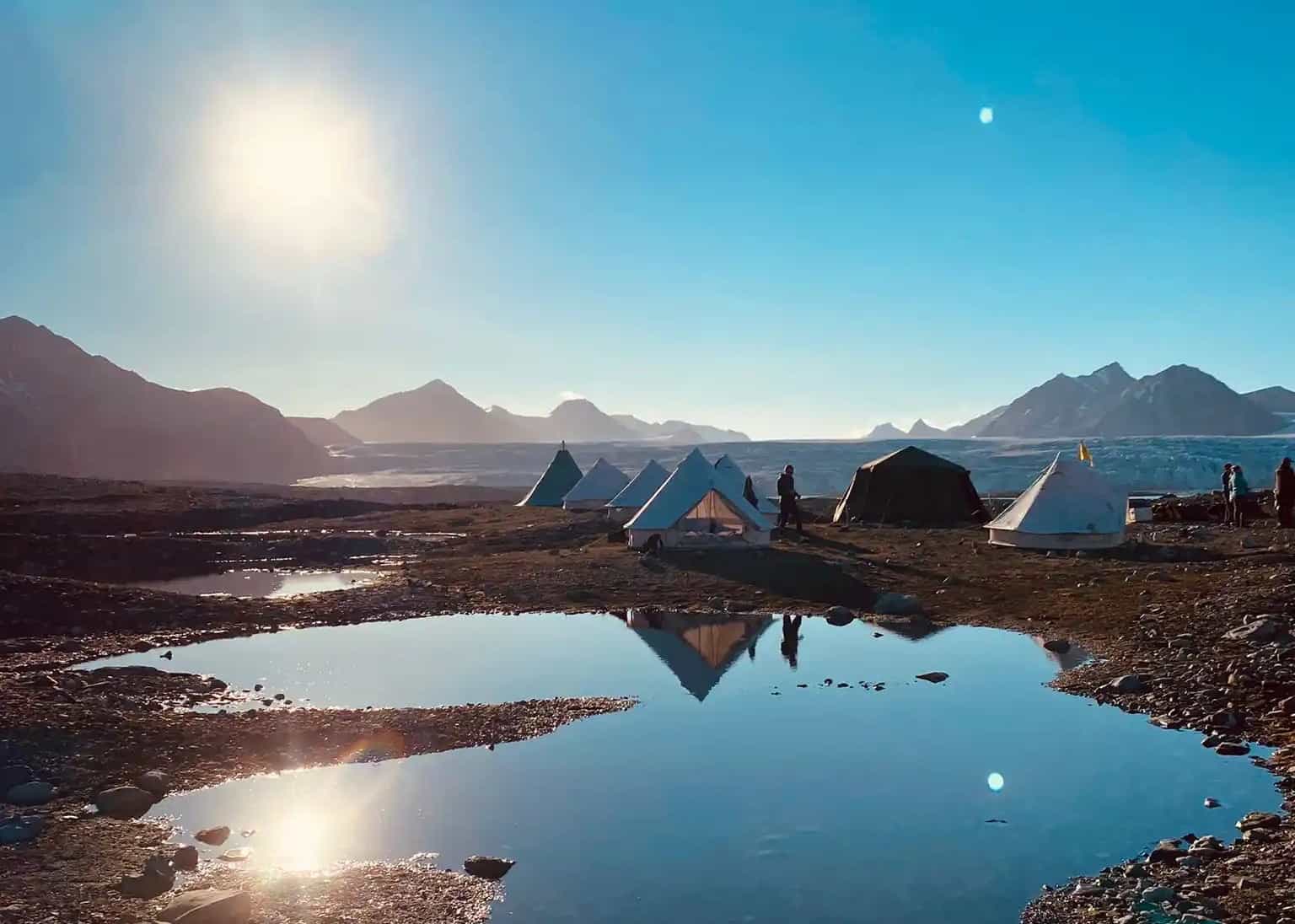
In the wilderness
You'll stay in a twin-share tent at a private wilderness camp in Ymerbukta. All your camping equipment is provided, although you will need to bring your own sleeping bag (or hire one from your host). There is a toilet tent as well as a heated expedition mess tent with benches, a table and stoves for cooking and drying clothes. Needless to say, there is no electricity or WiFi at the camp.
Upgrades
For solo travellers looking for their own space, a private room can be booked for the four nights spent in Longyearbyen, see Optional Extras for the price. Please request this at the time of booking (this is subject to availability).
This trip has been rated as Moderate
You'll need to have a decent level of fitness and a serious sense of adventure. There are several full days of hiking (sometimes using crampons and harnesses) and sea kayaking. No previous experience of kayaking is necessary but ideally you will have experience of at least a day hike on uneven terrain. You will be expected to do Polar bear lookout in shifts at night time while at the wilderness camp.
Please also read the following FAQs: What does Polar bear lookout entail? What about Polar bears being killed by tour guides? What's Plan B in case of bad weather or a Polar bear near camp? Cold Climate: What factors should I consider?
What will I need to carry?
You'll only need to carry a daypack (35+ litres) during the days of activity. Your main luggage will be transported for you to storage before you leave town and you will need a larger duffle bag or backpack to take to the wilderness camp. You will have to carry this yourself for approximately two hundred meters when you arrive in camp.
Svalbard experiences a long period of midnight sun, during which the sun never sets. Average summer temperatures in Svalbard range between 3–7°C (37-44°F), while at certain times during the 'polar summer' it can reach as high as 12°C (54°F). However, it can also see negative temperatures as well, so you also need to be prepared for temperatures down to around -5°C (23°F).
Arctic experience
A beautiful place with gorgeous views from the hikes and a lovely kayaking experience. The guides were good and professional. We were disappointed not to be able to camp at the wilderness camp due to the presence of polar bears, but understood the reasons. However plan B of camping near the airport was more disappointing as we missed the adventure of the wilderness camp and polar bear watch which was a significant part of the trip. The alternative hikes and kayak were lovely just not what we were expecting.



Rugged landscape at the end of the world
A fabulous trip. Beautiful landscapes and a great bunch of people. Plenty of reindeer and a few foxes, but surprisingly didn't see any marine life. The 24 hour daylight meant plenty of time for activities, though it messed with sleep patterns. Weather was warm and for obvious reasons it doesn't get any colder in the evenings. Need to accept flexibility in itinerary - we missed out on the wild camping due to polar bears in the vicinity. But they did a great job of making an alternate plan. Guides were great and food was good and plentiful. Highlight was a 22km kayak trip with a lunch and nap in the tundra. Movement is very restricted and you can't leave Longyearbyen without a guide.
Amazing Arctic Experience
Had so much fun on this trip, the guides were great and I especially loved that we were often joined by their dogs as well. The variety of terrain you get to experience, wildlife you get to see, and activities you get to do makes for a fantastic experience.
As a warning: if the group is unable to stay at the wilderness camp for weather (or polar bear sighting in our experience) the back-up camp they put you in is VERY underwhelming - we were at a campsite in front of the airport with the terminal towering above the tents....However, our guide Kaisa did an amazing job of making up for this bad accommodation with some extra special hikes and a great kayak trip that we would not have been able to do from the wilderness camp.






Beautiful landscape, great activities
Get on this trip with no expectations and try to be flexible. Svalbard is a wild place where animals and weather can change your plans suddenly but the beauty is, it has so much to offer that you will not be bored. Our guide Kaisa was absolutely fantastic and her dog made the best companion.
Great trip
Really everything about the trip was great, especially our two guides. The only exception was the hostel. This was one of the most wasteful energy inefficient buildings I have ever come across. The heating was on full time and there were everywhere non-functional heating controls, so half the windows of the hostel were constantly open to reduce the temperature. Such shocking waste is ironic given that for the rest of the trip we are hearing messages about climate change, receding glaciers and the struggle of the polar bear. (I understand the hostel is owned by the same company as SWA the main tour provider).
It was an amazing holiday
It was an amazing holiday all through out. A spectacular opportunity to be out in the wilderness (true escapism) with the safety and support of the guides. All the guides were amazing and really enthusiastic about Svalbard, especially Mirko and Torus. They were a good team - felt safe all the way through and they tailored the days depending upon the group Really well organised.










Fantastic adventure
The trip was an absolute blast! Perfectly organised, full of great activities with knowledgeable and lovely guides! The whole group really bonded and we had an amazing time. The experience really let's you feel the remoteness of the place, switch off with the nature. The camp is incredibly comfortable and we were spoiled with the food. The views were amazing, the activities were varied and fun. During my night polar bear watch I was joined by a friendly arctic fox! It was everything I hoped for and so much more! I'm really looking forward to going back!








Welcome to the Beyond!!
Be warned, this trip gets under the skin - there’s something about the perfect stillness and silence of the Arctic and the remoteness from modern life that is very powerful. Being on polar bear watch to the sounds of only birds and glacier calving is like being in another world. While the midnight sun and stillness was bewitching, the days were action packed and exciting - ice climbing and crampons on our nearest neighbour, the Esmark Glacier, and kayaking with an inquisitive seal for company was incredible. And for a bit of puff to the top of one of many mountains to choose from gave me one of the best vistas I have ever seen. Come prepared for a bit of a reassessment of the pace of life and the need to constantly be on the go. Leave feeling incredibly privileged and connected to nature in a whole new way.








Amazing Experience
I'll remember this for the rest of my life. The hikes were amazing, especially the one in the glacier. The guides were great, alaways awhare and trying to give us the best possible experience. And the group of people That I've had the good luck of being part of... It seemed that we were all friends for 15 years.
Brilliant, brilliant trip
Wonderful trip. The local company (Svalbard Wilderness Expeditions) were superb. All the guides we met were great, and Mirko who led the camp had years and years of experience, but still retains such enthusiasm. Torjus and Eleanor were also great. The camp is a really immersive wilderness experience, and we loving it - even the polar bear watch shifts through the night, which were slightly gruelling but also magical. 3 nights was perfect, and we also did 2 great walks. It was great to share the experience with such a lovely group, and hope to stay in touch. Our first trip with MBA and it was a really memorable one!
This was such an incredible
This was such an incredible trip, I would recommend it to anyone considering booking it. Everything was fantastic, from the guides, the other group members, the wildlife we encountered, the wild camping, the kayaking...... I could go on! As an added personal bonus, one of the guides dogs who accompanied us to camp, appropriately named Gandhi, was such a calm soul he even managed to help me with my phobia of dogs!
Stop reading reviews, write your own
Stunning place. Wet, cold, windy at times, constant Daylight, poo in a bucket and disturbed sleep. Wouldn’t have changed it for the world! It’s all part of it. The guides will look after you. They have only 2 aims. Making sure you have the time of your life and keeping you safe. They were brilliant (but don’t tell Jonas I said that). I have memories and experiences that will stay with me for ever. I was with a good group but then we all had the same mindset so not surprising we all got on really. Just make sure you give your spoon back!
Well nice organize, the guides
Well nice organize, the guides were amazing and fit for the job. Amazing week
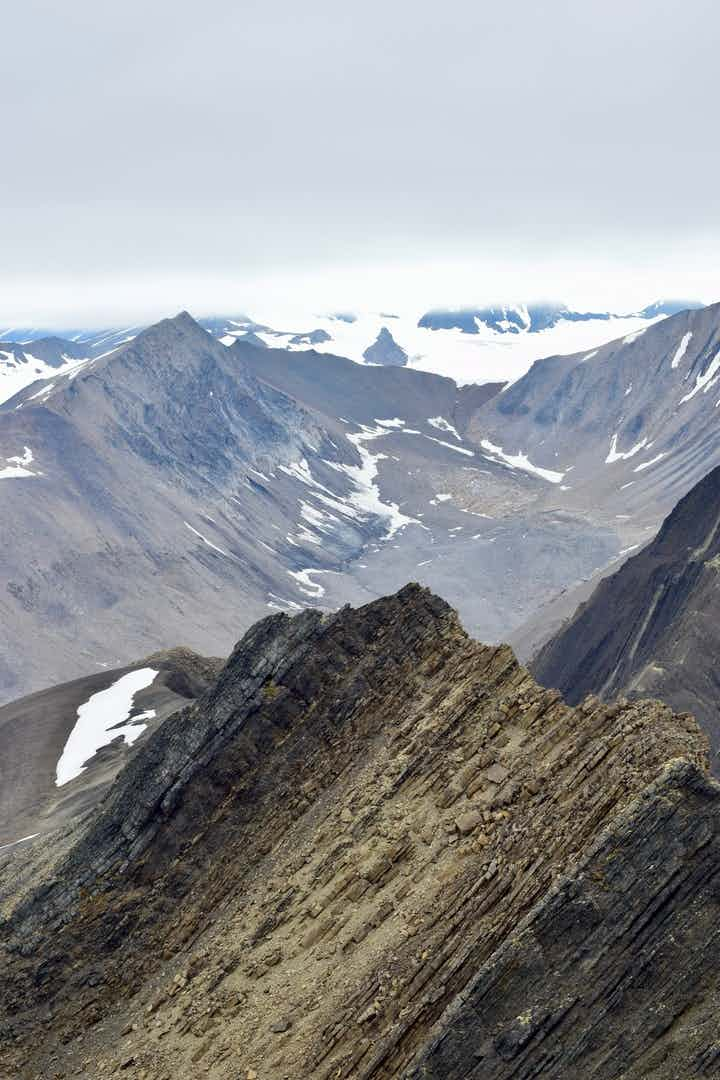
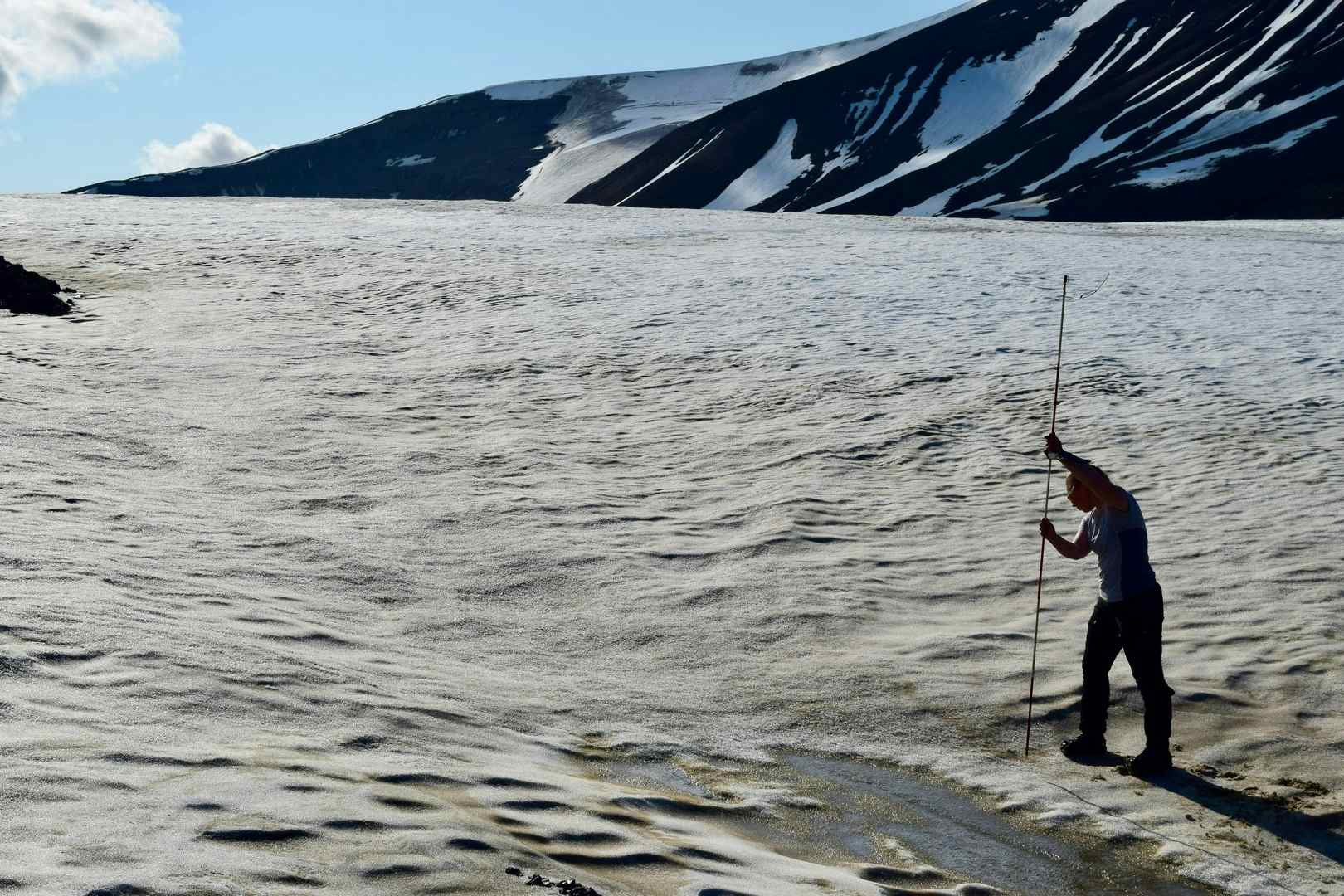
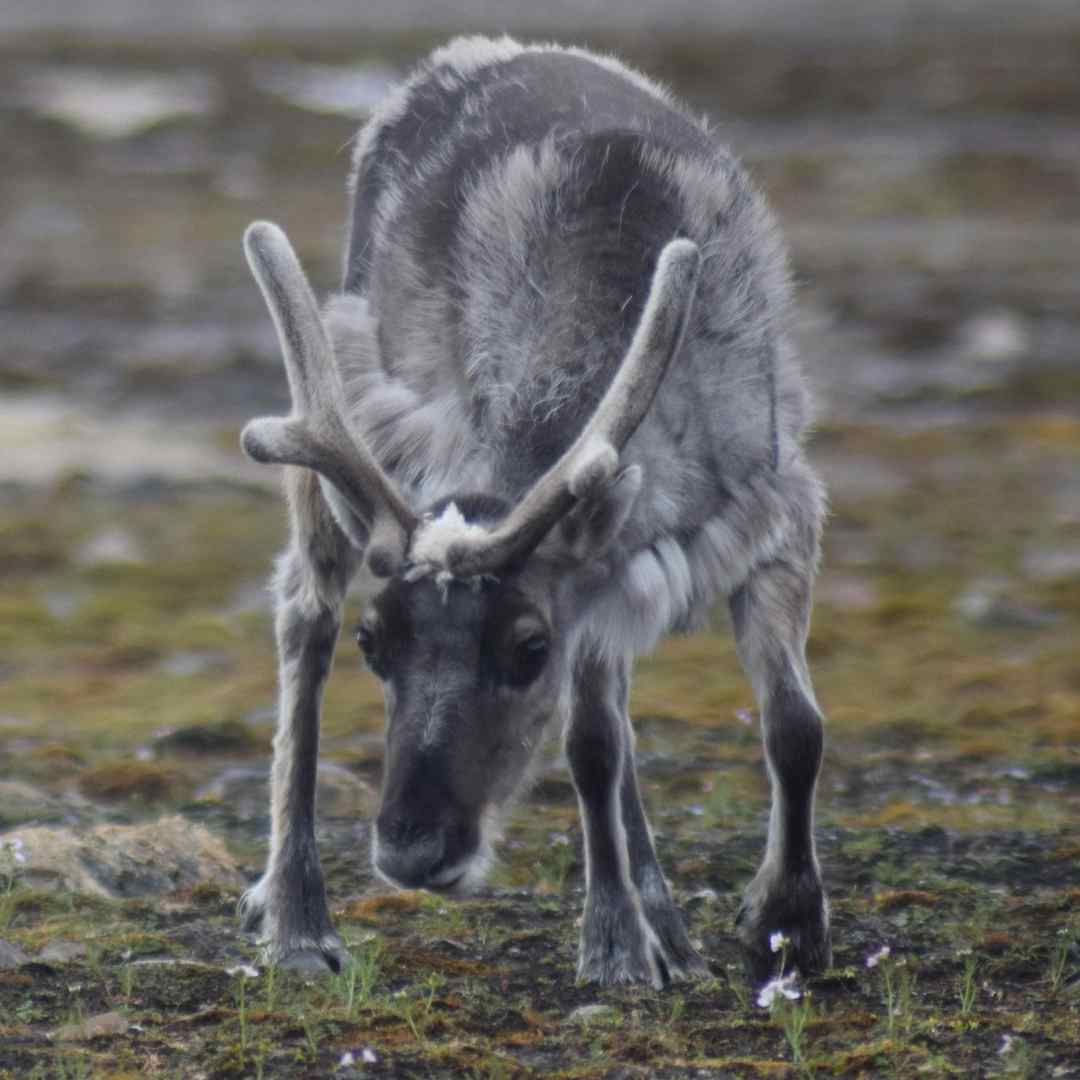
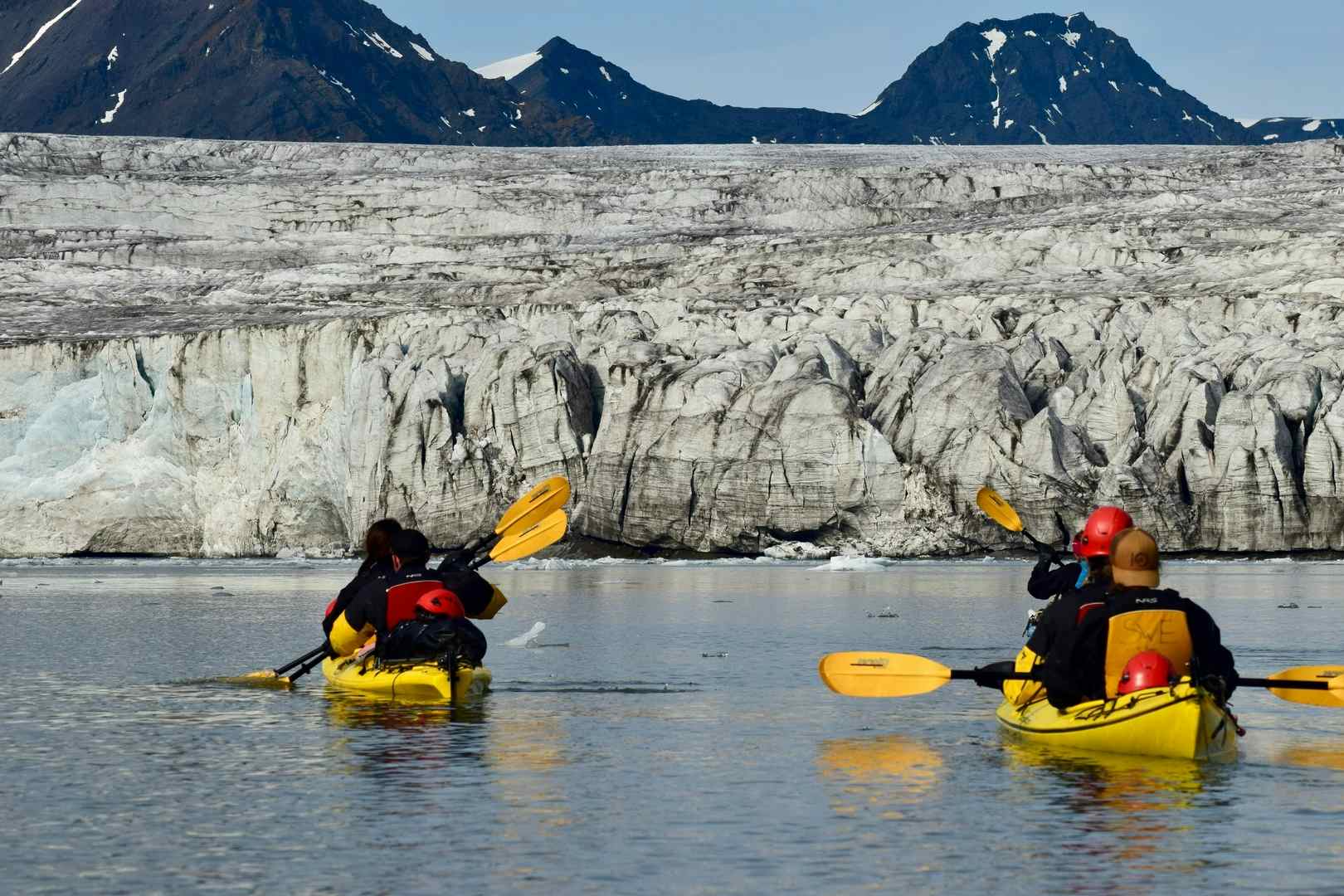
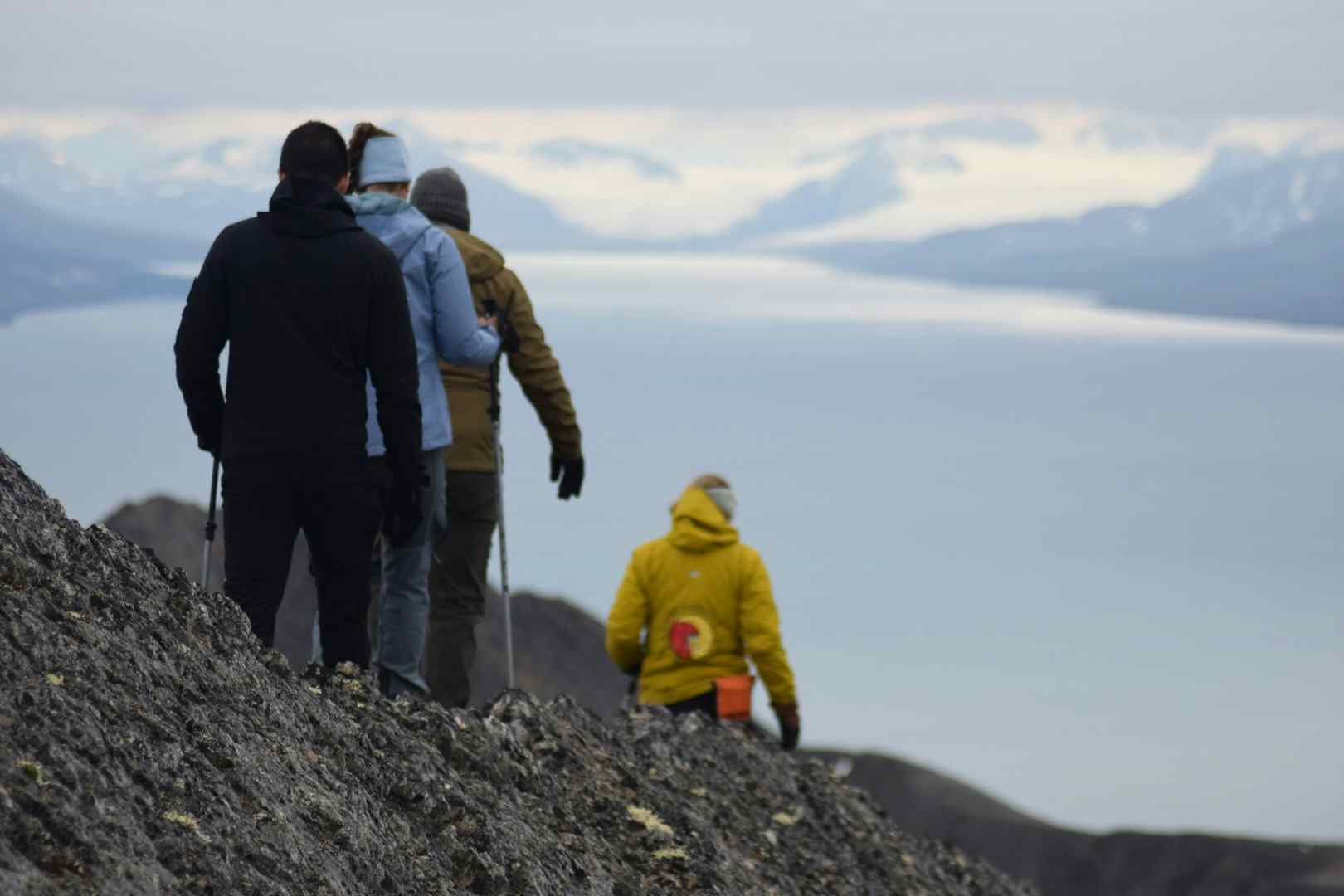
Incredible experience
This was a trip of a lifetime, I had such high hopes for this trip having had it booked for two years and it exceeded my expectations.
Svalbard is an incredible place to visit with breath taking views and awe inspiring wildlife and this trip is the best way to see all of it. The glaciers are incredible and the views from the mountain peaks will take your breath away. The activities were varied and although challenging, were incredibly rewarding. Every activity and day were amazing and difficult to pick a single highlight.
I couldn’t have asked for a better group of people to share this adventure with, it was great how we came together as a team, which was most evident by the final day. Having dinner followed by a game of cards at the end of each day was a great way to wind down. I couldn’t give enough praise to our guide Kaisa who found the perfect balance of making the trip a challenging and rewarding adventure and giving us the opportunity to relax. Her attention to the safety of the group, particularly regarding bear watch was on point. Thank you again for an amazing time and all the best to you and Gandhi.
If you’re reading this considering booking then just do it, you won’t regret it.
The guide was great and had a dog that came with us. The itinerary is very flexible based on the weather and what the group wants to do. Could spend the whole trip kayaking if wanted. The camp food was really good. It was also not as cold as I was expecting. Still need lots of layers though.
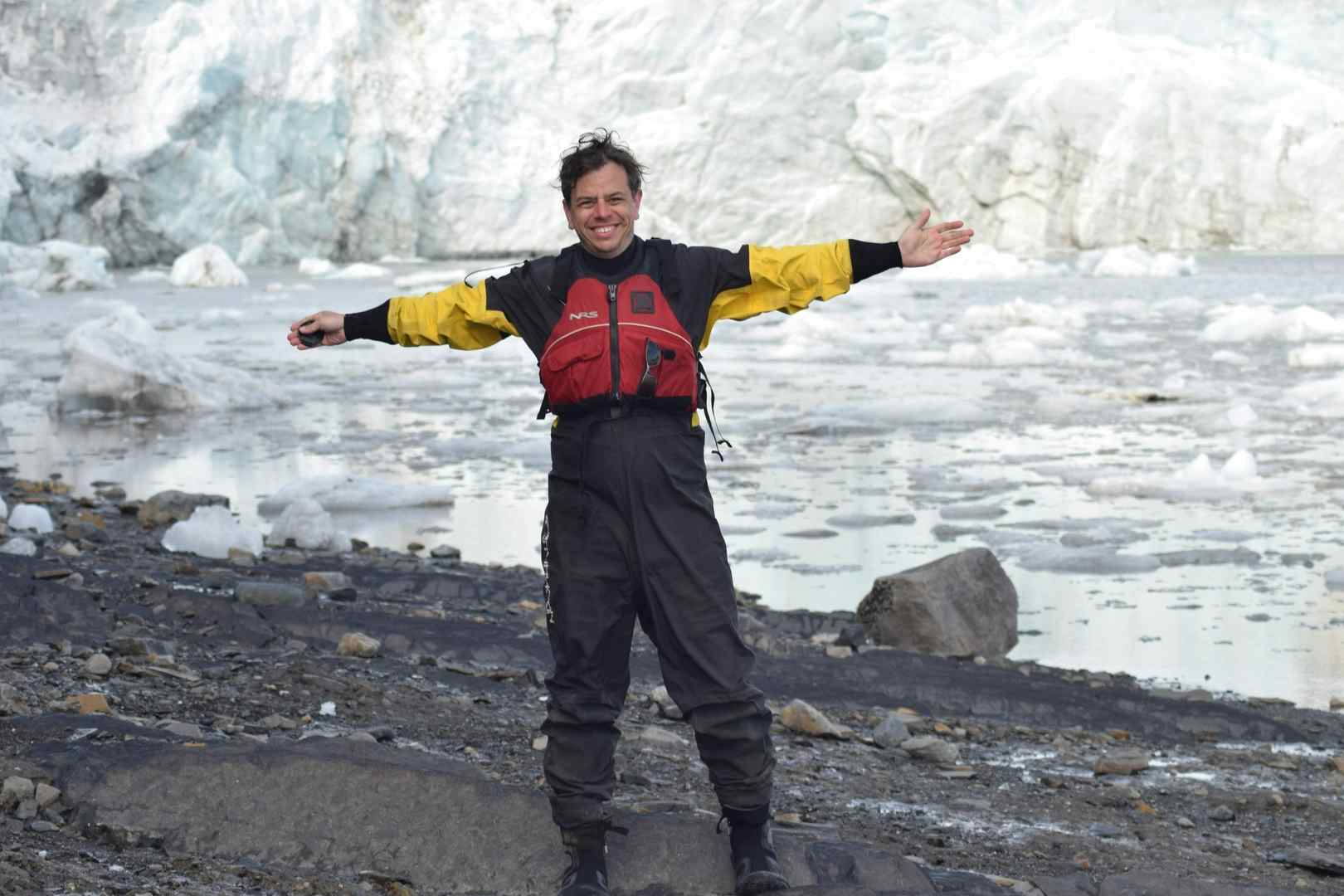
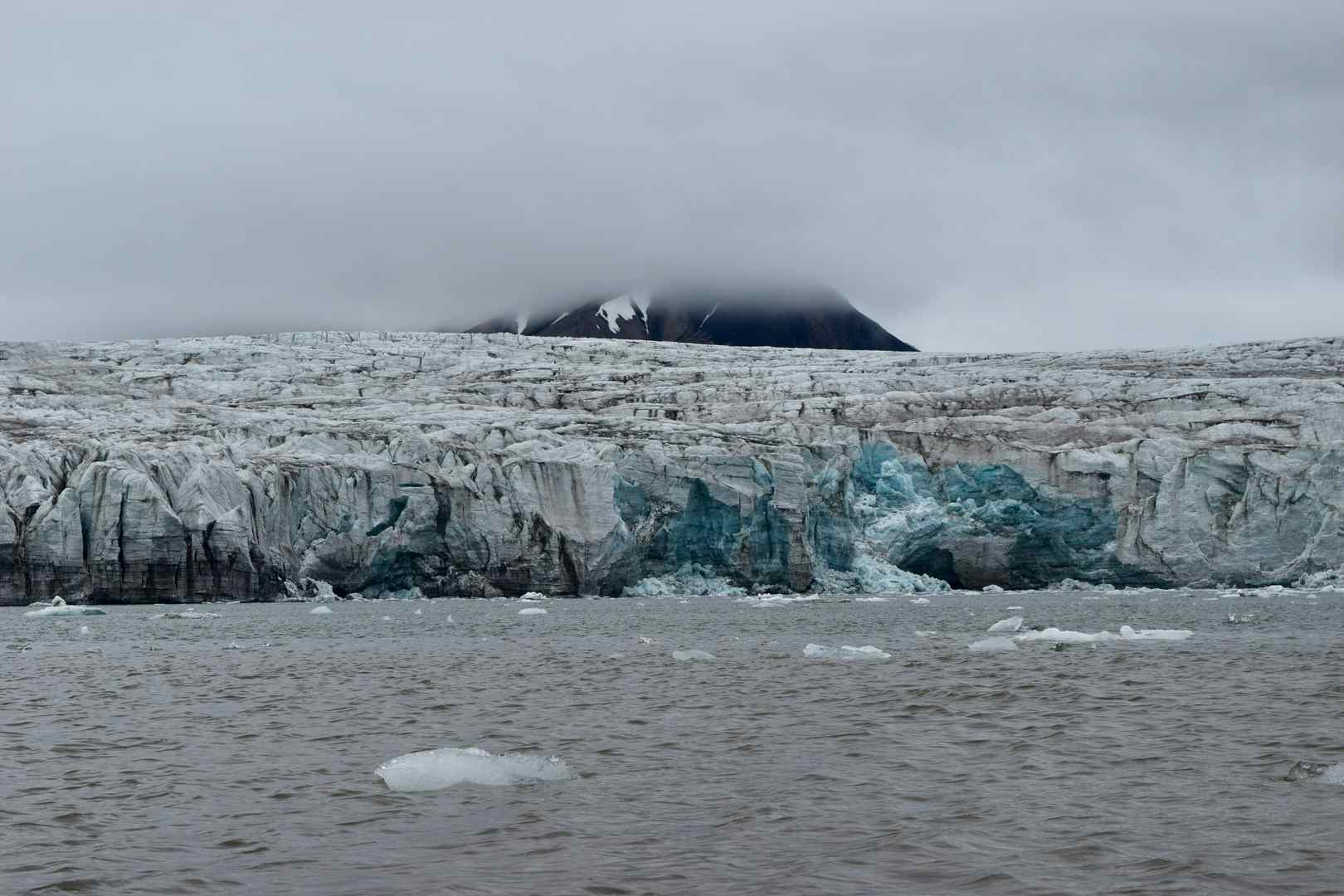
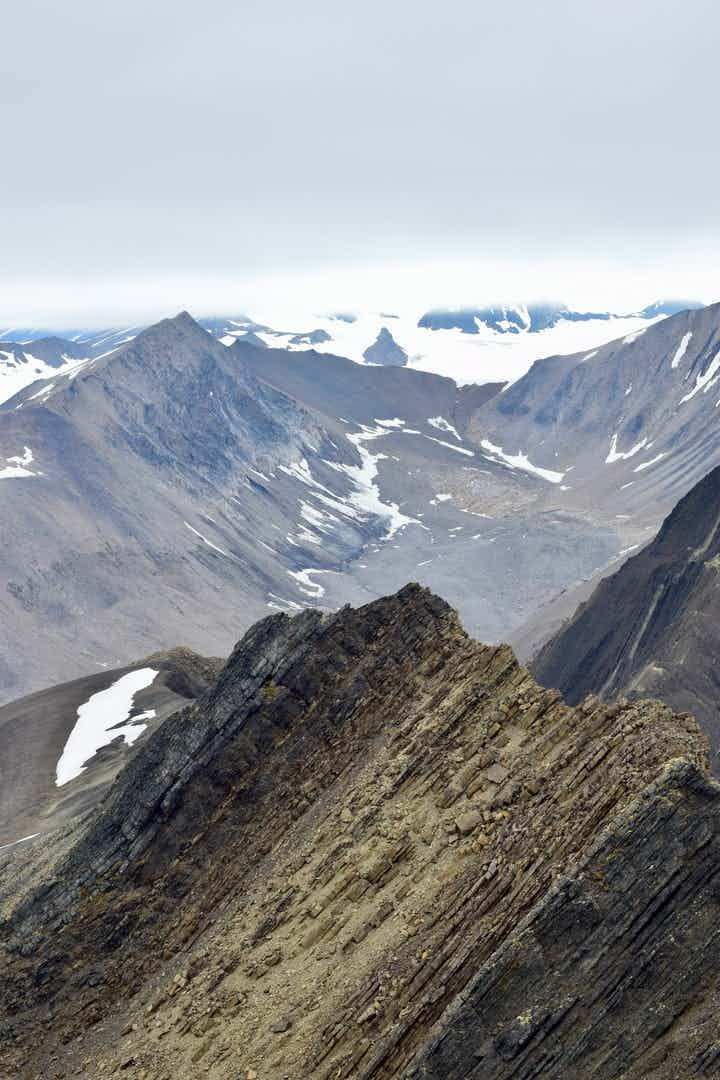
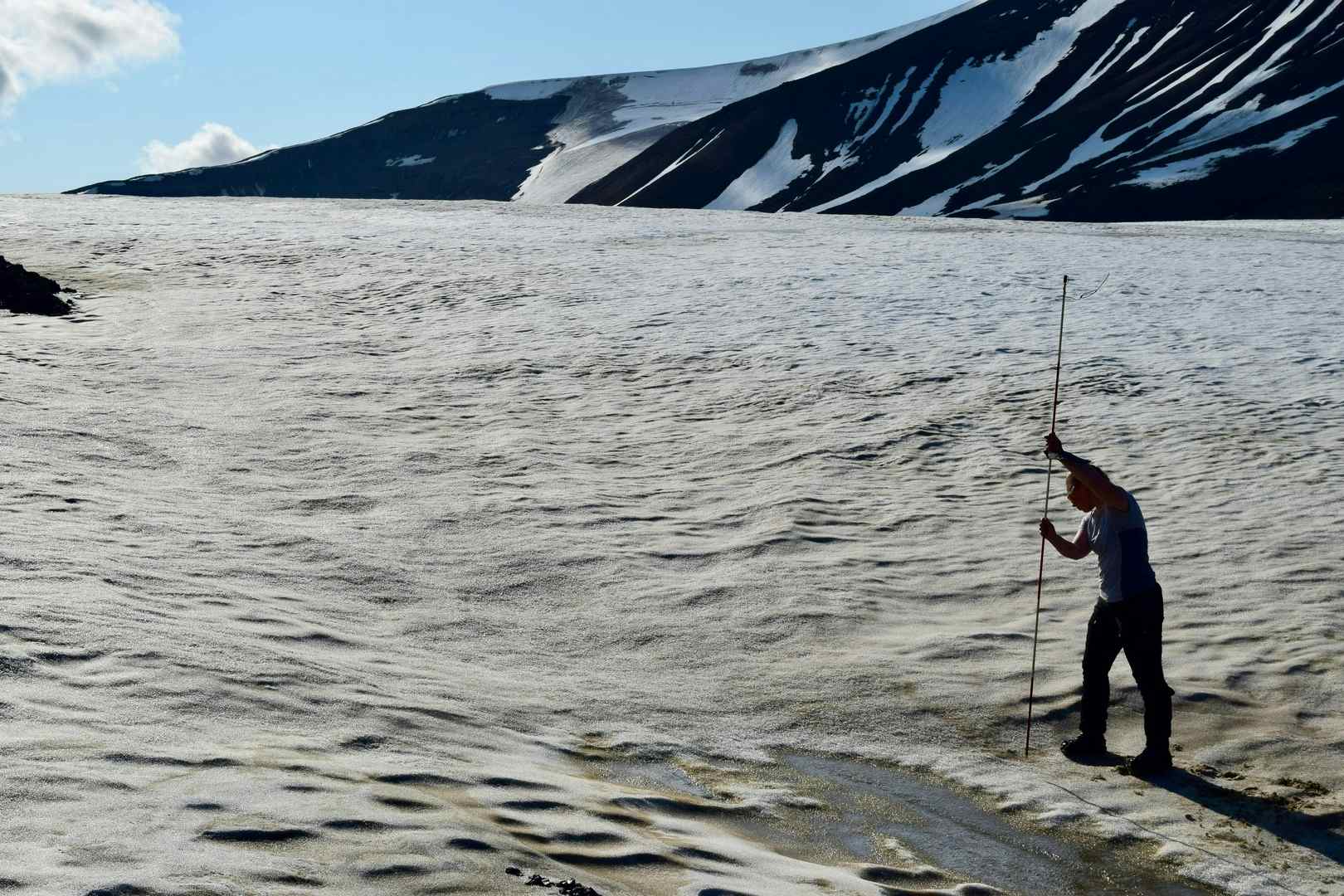
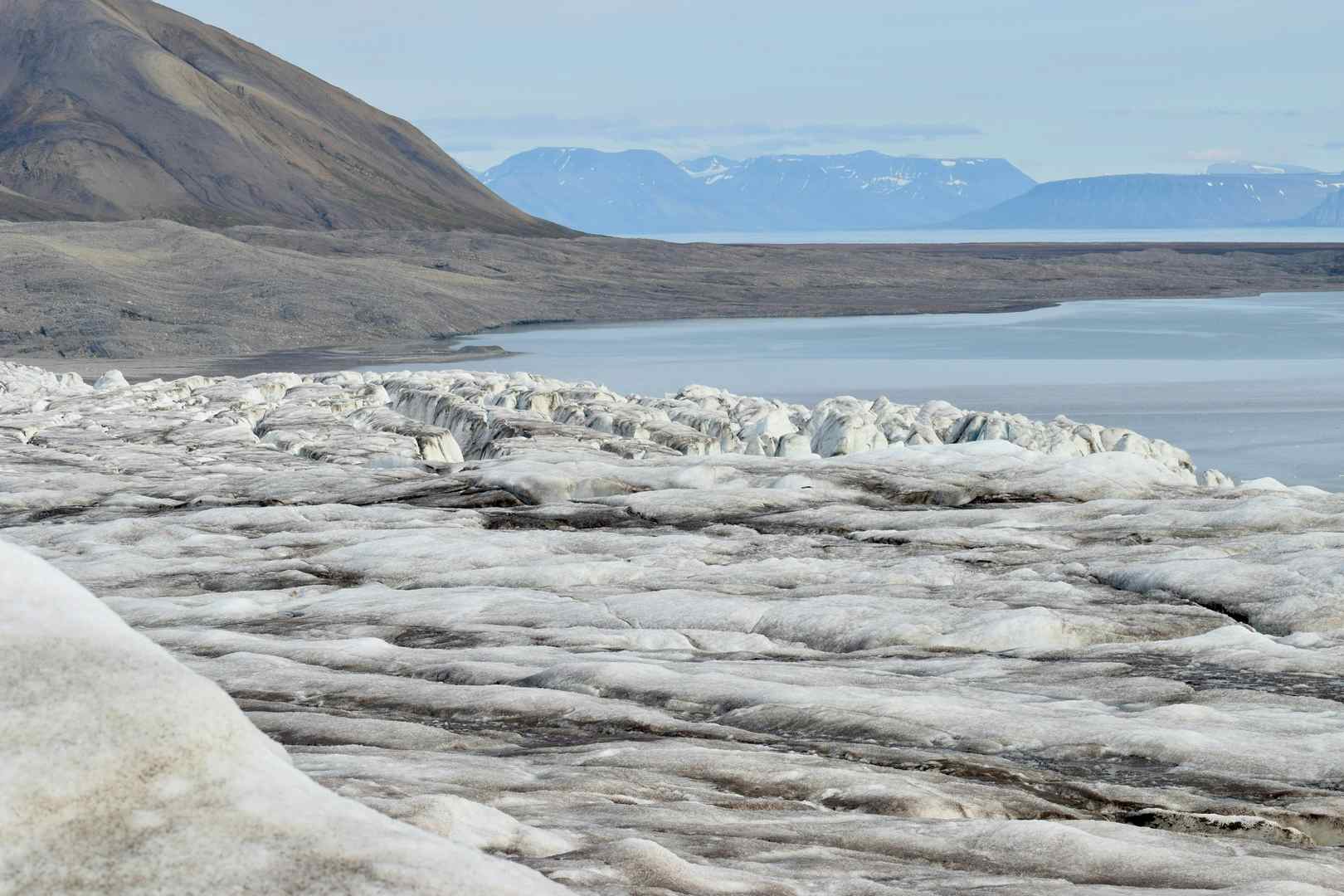
This was a trip of a lifetime, I had such high hopes for this trip having had it booked for two years and it exceeded my expectations.
Svalbard is an incredible place to visit with breath taking views and awe inspiring wildlife and this trip is the best way to see all of it. The glaciers are incredible and the views from the mountain peaks will take your breath away. The activities were varied and although challenging, were incredibly rewarding. Every activity and day were amazing and difficult to pick a single highlight.
I couldn’t have asked for a better group of people to share this adventure with, it was great how we came together as a team, which was most evident by the final day. Having dinner followed by a game of cards at the end of each day was a great way to wind down. I couldn’t give enough praise to our guide Kaisa who found the perfect balance of making the trip a challenging and rewarding adventure and giving us the opportunity to relax. Her attention to the safety of the group, particularly regarding bear watch was on point. Thank you again for an amazing time and all the best to you and Gandhi.
If you’re reading this considering booking then just do it, you won’t regret it.
It was fun to be able to adventure all day without limitations of the sun setting. It gave us so much extra time to do more hiking, kayaking, and more. Our guide was great and the trip provided peace and calmness that is difficult to find elsewhere. I especially enjoyed getting to kayak through icebergs and hiking and ice climbing on the glacier.
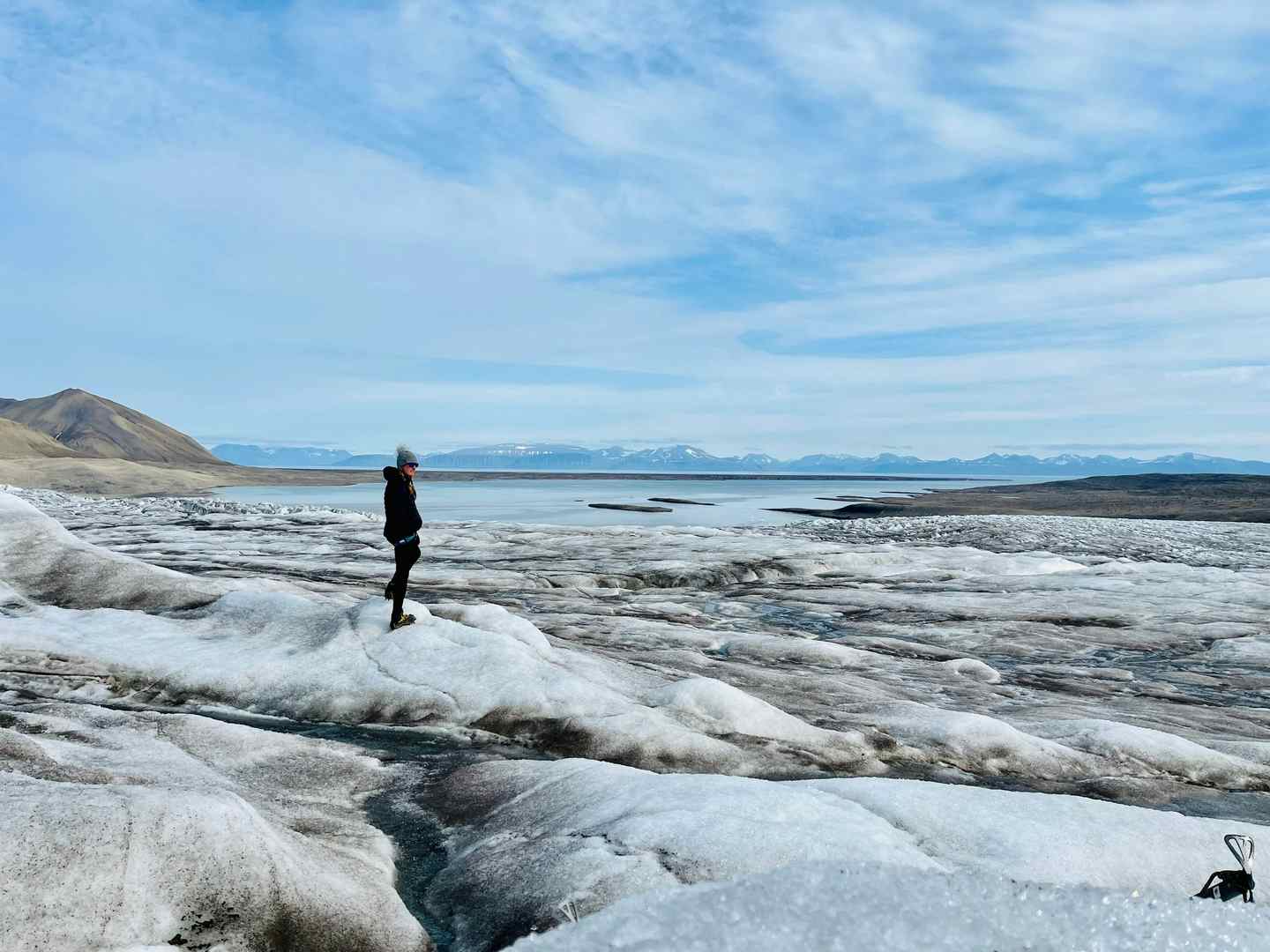
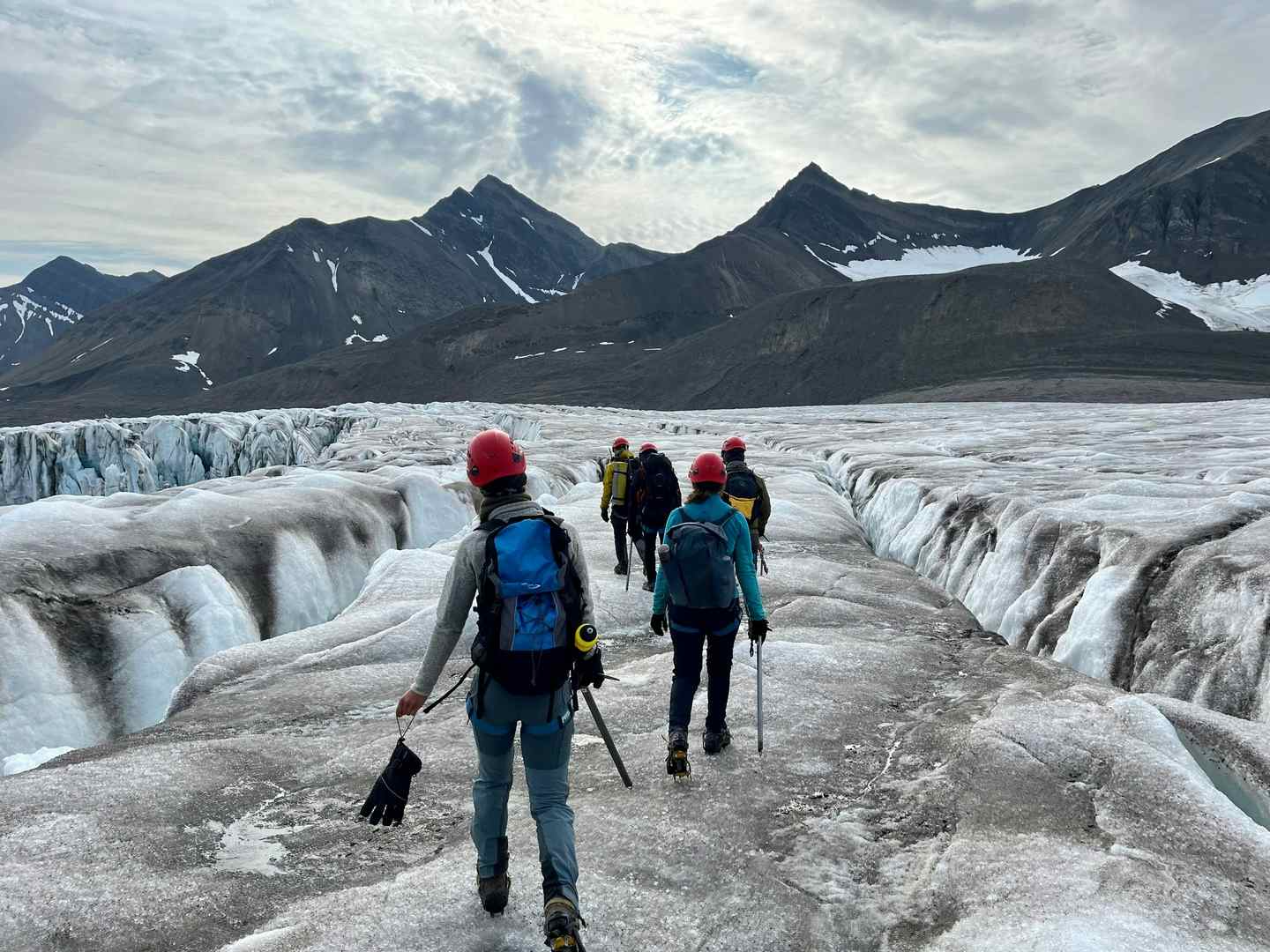
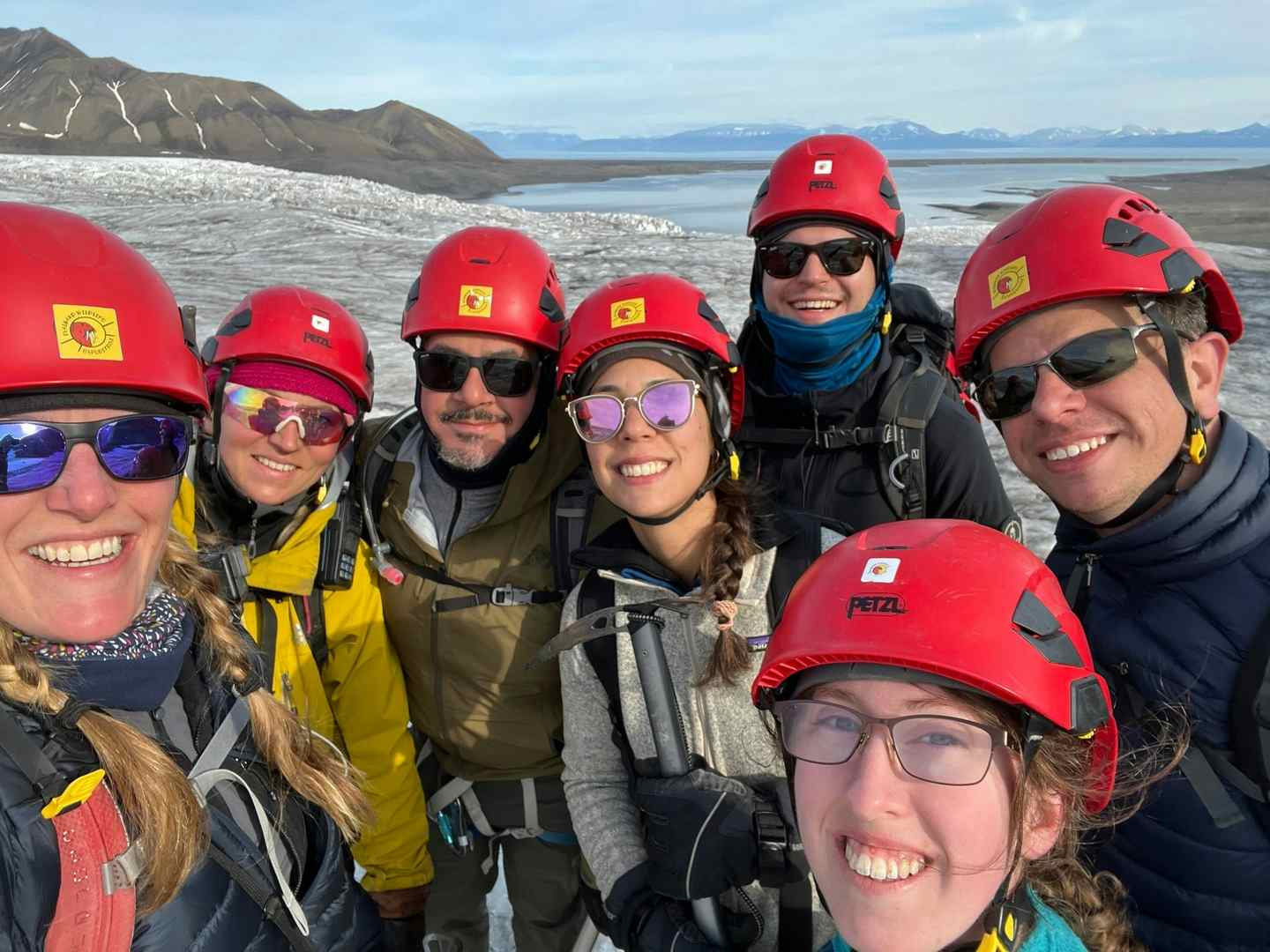
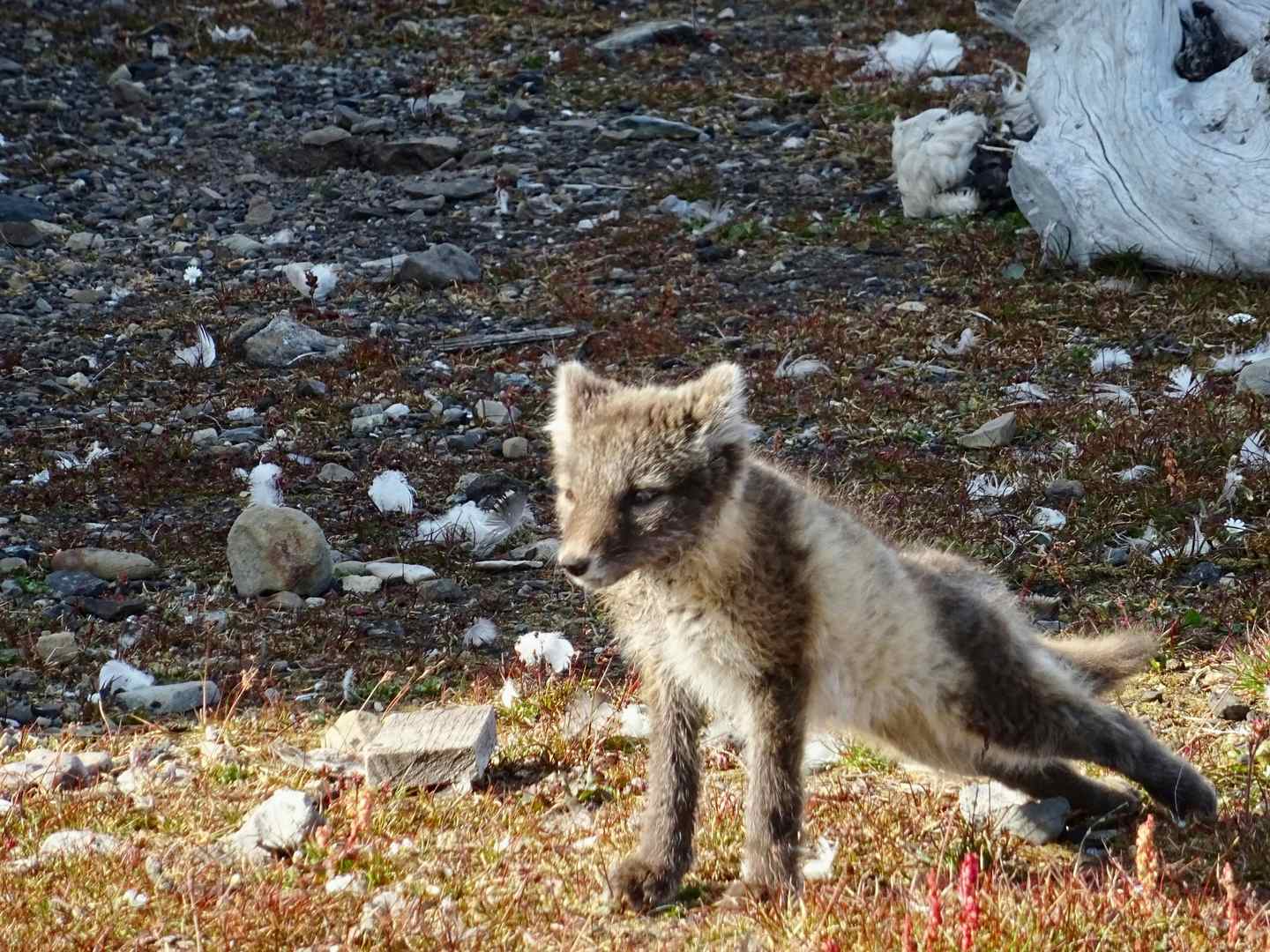
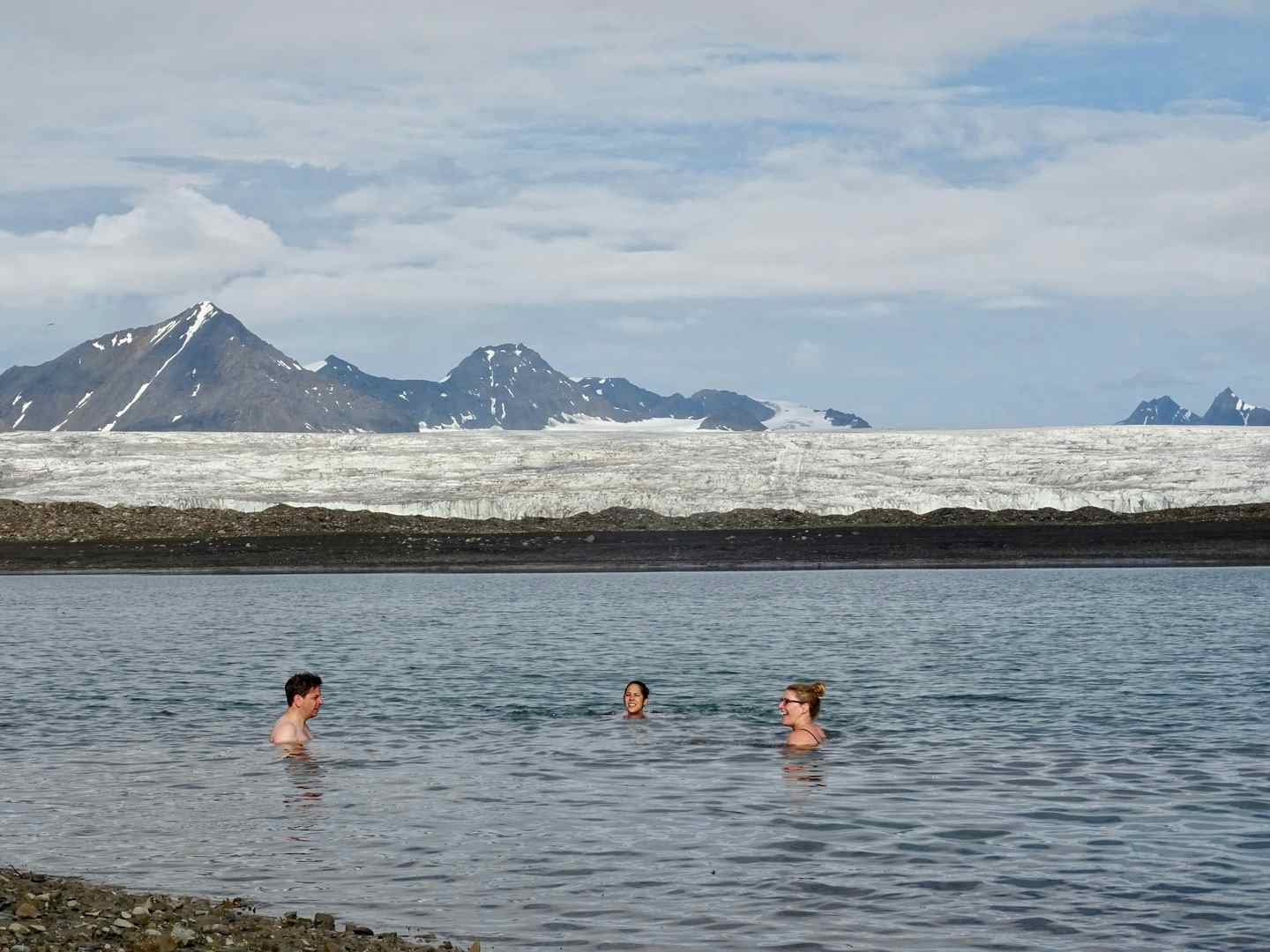
A totally phenomenal trip: from start to finish the whole group had an amazing time. The guides were great, but particularly Kaise who was our guide for the camping: she was amazing. Each day seemed to surpass the last with adventure, fun and wildlife. The food was delicious and they catered well for my gluten free diet. This trip will be very difficult to surpass!
Amazing views and an amazing experience. Would highly recommend. The guide on our trip was super knowledgeable. Made us feel safe even during a polar bear scare (yes, they exist, take the polar bear watch seriously). She made amazing breakfast and dinner. I saw another review that said the guides weren’t very social, but that is because our guide was so busy making sure we were safe and well fed. Bring some cards and you’ll get all the socializing you need. I don’t want to raise expectations unreasonably, but the campsite was better than I thought it would be and I was overall impressed with the professionalism of the company running it. The views are second to none and it really stretched me as an individual. You won’t regret this trip.
Absolutely incredible all-round experience from beginning to end. The host made us feel like we were on a vacation and took all our needs and wants into consideration in the preparation of our routine and adventures. By far the biggest highlight for me was the hike on the glacier which was truly an amazing activity!

What a memorable trip. I can't say enough about our guide Niclas. His expertise, local knowledge about the terrain, and attention to the needs/skills of the group made this an awesome experience. It's a small taste of a landscape and way of life not often experienced.
Svalbard is a really unique place to visit and we are very glad we experienced such a variety of activities here! All told, we covered kayaking, hiking (on quite uncommon surfaces: miles of rock scree and very squishy permafrost), glacier walking, and ice climbing. The barren Arctic rock and ice landscape is likely unlike any you've seen before. The mining-turned-tourist towns you visit (Longyearbyen and Barentsburg) feel like windows into the frontier pasts. The midnight sun will certainly confound your brain. At the camp, the tents were spacious, toilet handled well, and food tasty and plentiful.
As far as execution, compared to other MBA trips with Wild Camping, we felt a few improvements could take this trip from good to great. At the camp, we experienced tent issues with rain water and mud that we were not well equipped to handle (as far as prevention or tools for cleanup). Thanks to the same mud, as well as lack of good seating, the communal tent was not a comfortable place to relax together after activities, which really impedes the bonding of the group on the early days of the trip. Lastly, though very nice and capable, our guides were relatively reserved and quiet, lacking the proactively outgoing personability that really helps a group connect with an area and each other via great conversations and stories about the surroundings.
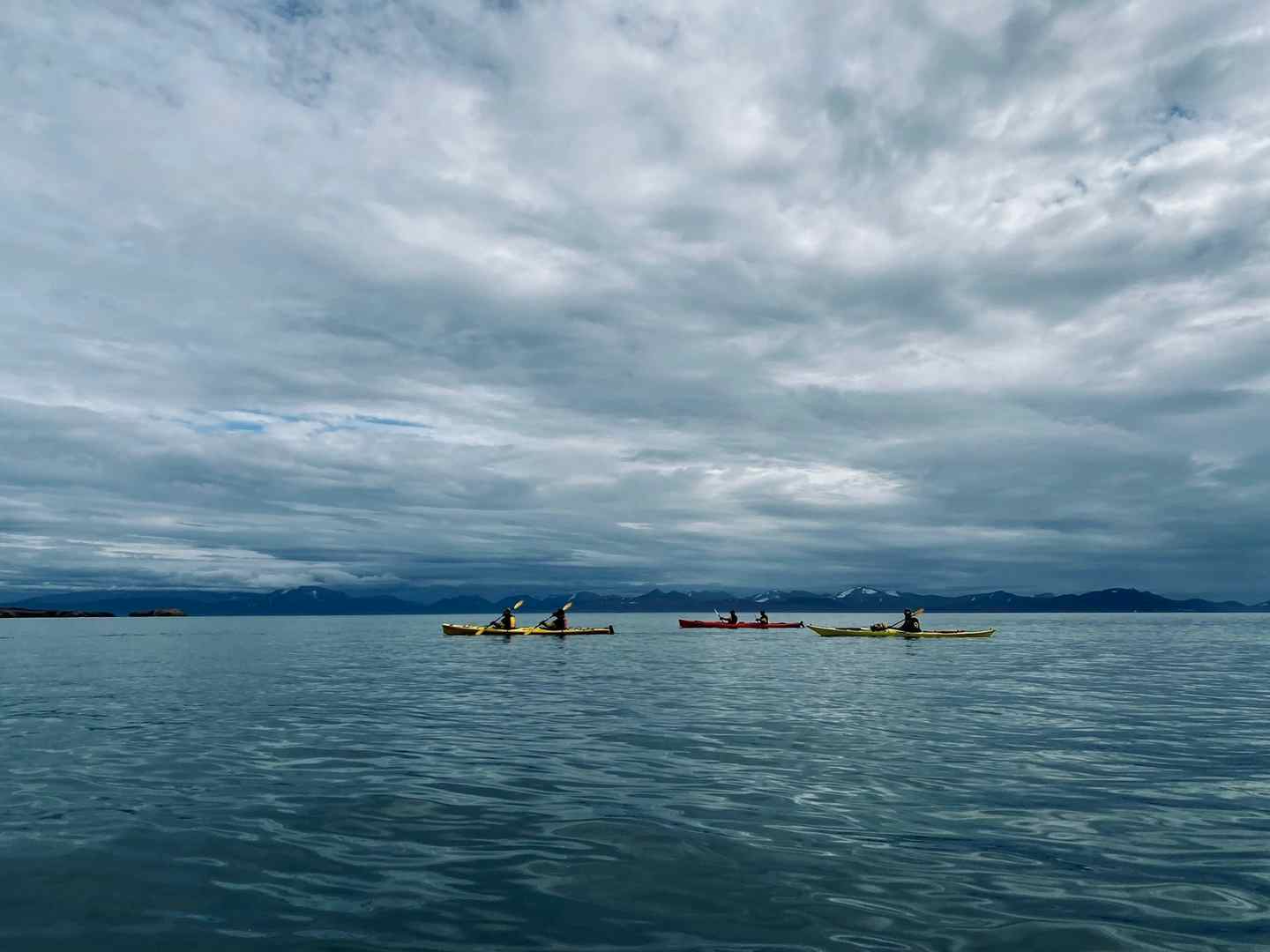
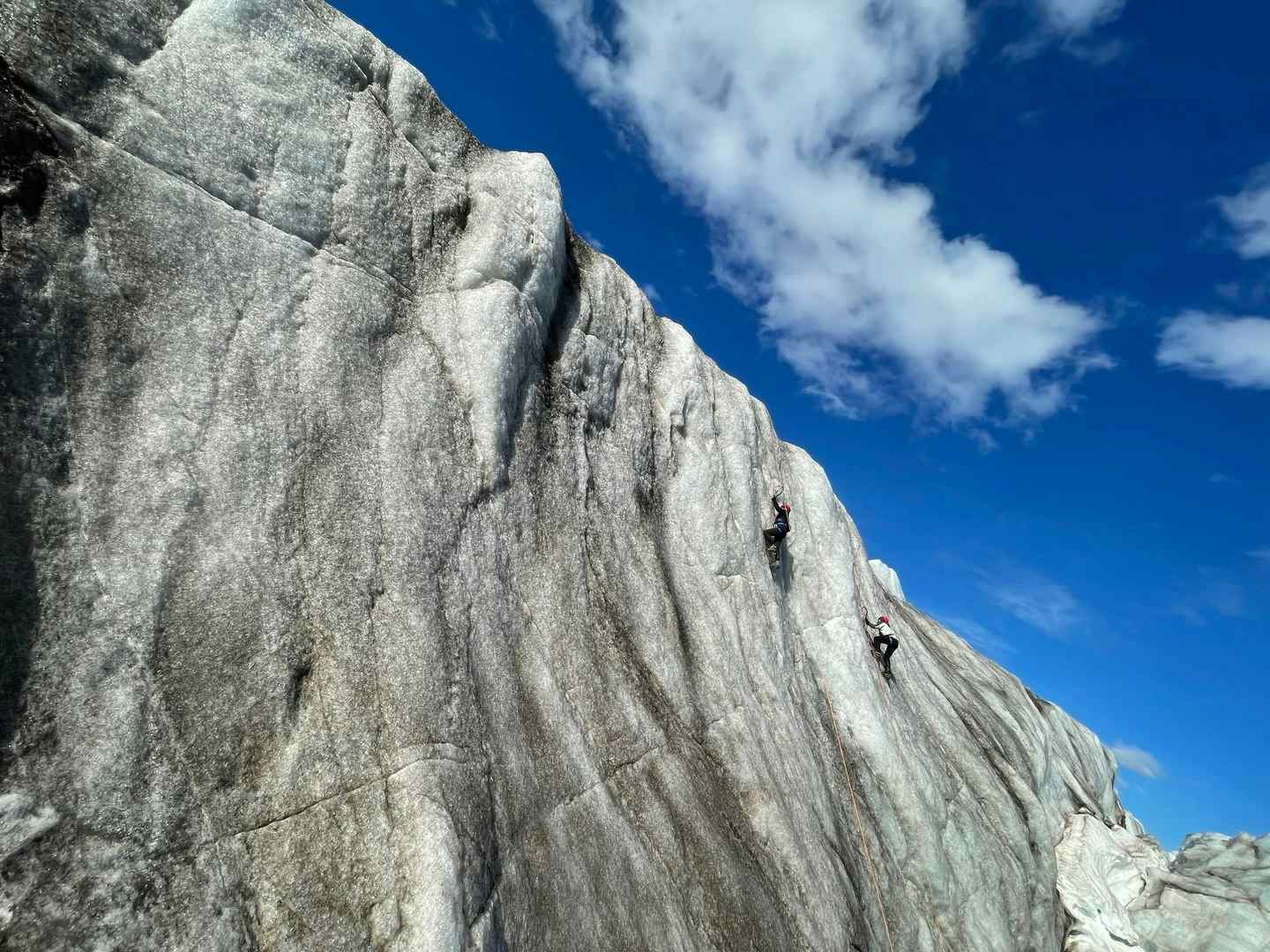
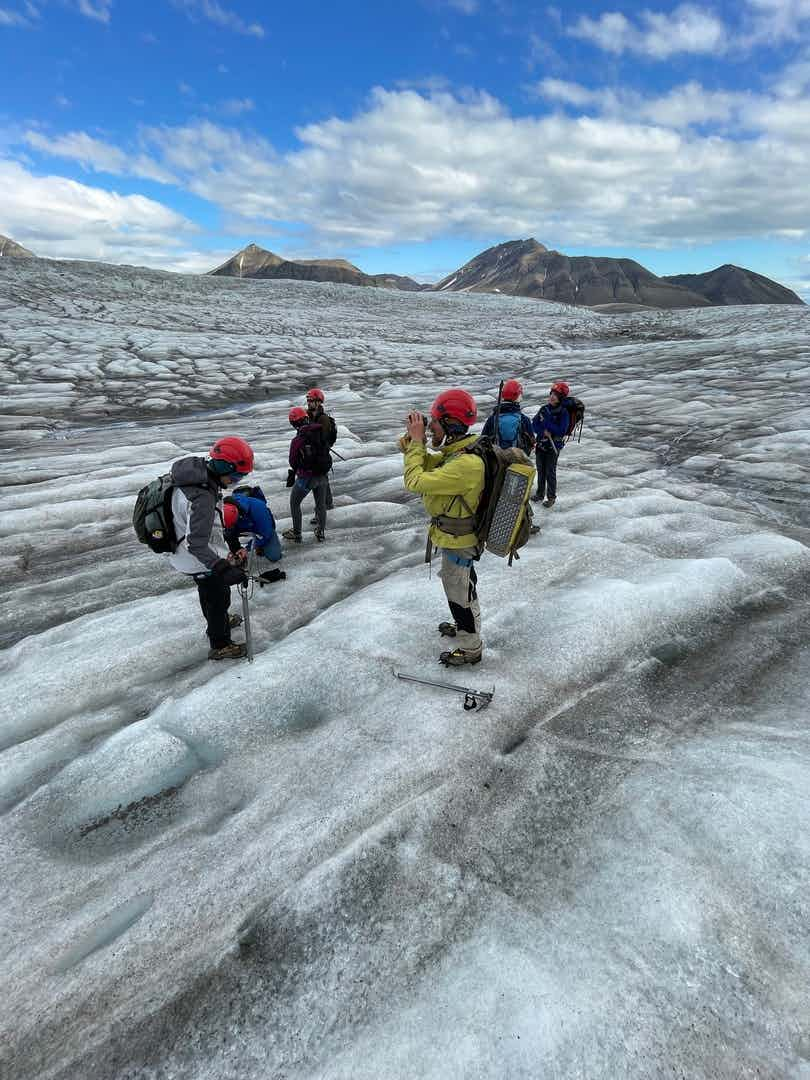
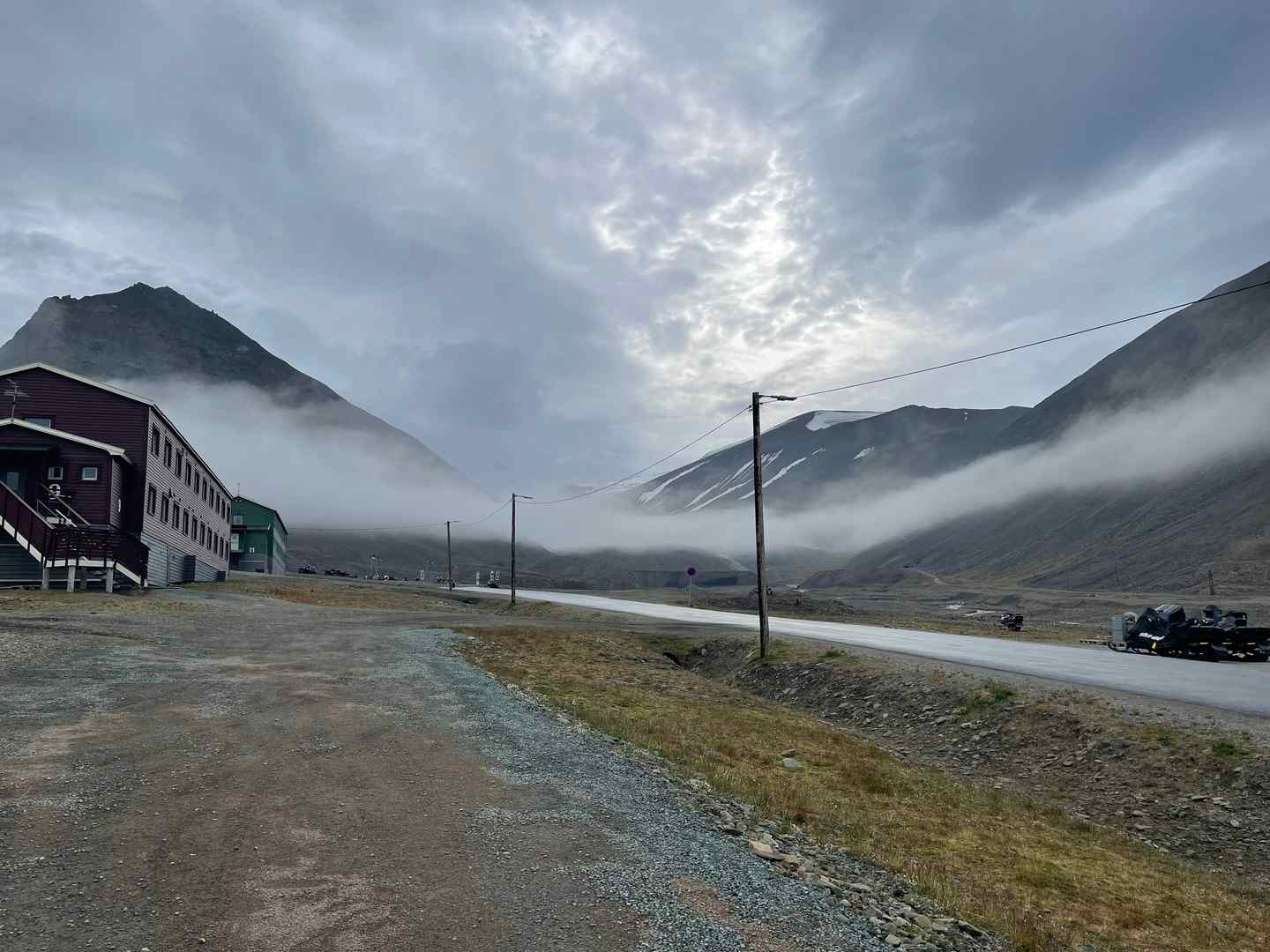
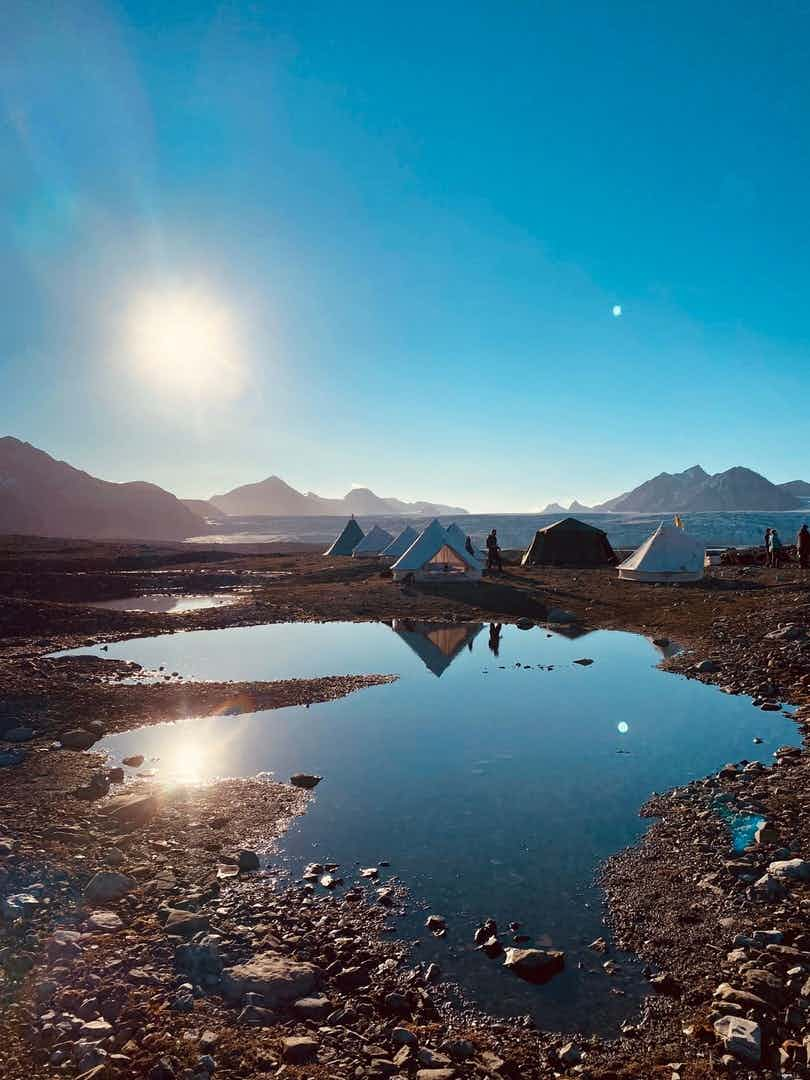
Svalbard is epic.
Tucked high into the arctic circle, the archipelago – which is ever so slightly smaller than Ireland – offers an extraordinary adventure.
However, to get the most out of your six days, you have to embrace the 'uncompromising nature' of this otherworldly wilderness.
The trip starts in Longyearbyen, a strip of a town that squeezes itself into a narrow, avalanche-prone valley. (In July, the slopes are thankfully mostly snow free).
The accommodation at hostel 102 is basic, but the showers are hot, and the breakfast waffles are worth getting up for. (You'll appreciate all this when you spend your last night there).
A hike up to the local glacier, Sarkofagen, is the perfect warm-up for what's to come. It's also a chance to road-test gear and layering. In retrospect, I'd packed too many hi-spec base layers.
Day 2 began with boarding a ship (not a boat) to the wilderness camp at Ymerbukta. After a 2.5-hour journey and a skit in a launch, we landed on the beach, backed by the stunning 17km wide Esmark Glacier.
The camp hadn't been used for a few weeks, so the tents were down and filled with rainwater. But rather than being a problem, setting up and drying out became an opportunity to bond as a group.
Over the next 3/4 days – it's tricky keeping track of time when its perpetually midday light – we:
•Clambered up the towering glacier, which came with the unexpected bonus of ice climbing. •Kayaked to a stunning fjord that could have inspired Narnia or Hoth. •Hiked to peak and tiptoed the ridge of the 600m + Värmlandsryggen mountain •And bravely/stupidly took the polar plunge, which is literally breathtaking.
Camp life was, sometimes, almost as challenging as the days out with everyone mucking in at mealtime and then taking turns on nightly polar bear watch. However, these were not hardships; they were all part of the experience. Spending a few bright night hours alone, with glaciers cracking and seals sleeping around you, is genuinely magical.
However, what truly makes a memorable adventure are the people. We were an eclectic crew who happily pulled together for the greater good and spent 'evenings' swapping stories around the campfire.
But the true heroes of this trip were our guides, Mikeal and Kasia, whose constant vigilance and understated expertise made us all feel simultaneously adventurous and absolutely safe. Their passion for this unique landscape was evident and quietly infectious. Tussen tak!
Yes, the camp could have done with chairs and a light for the main tent. And, perhaps saying that you only needed to 'moderately fit' for this trip was a little disingenuous. But, if you get upset by these kinds of niggles, this trip and Svalbard are not for you.
Me? I want to go back in the sunless, snow-filled winter.
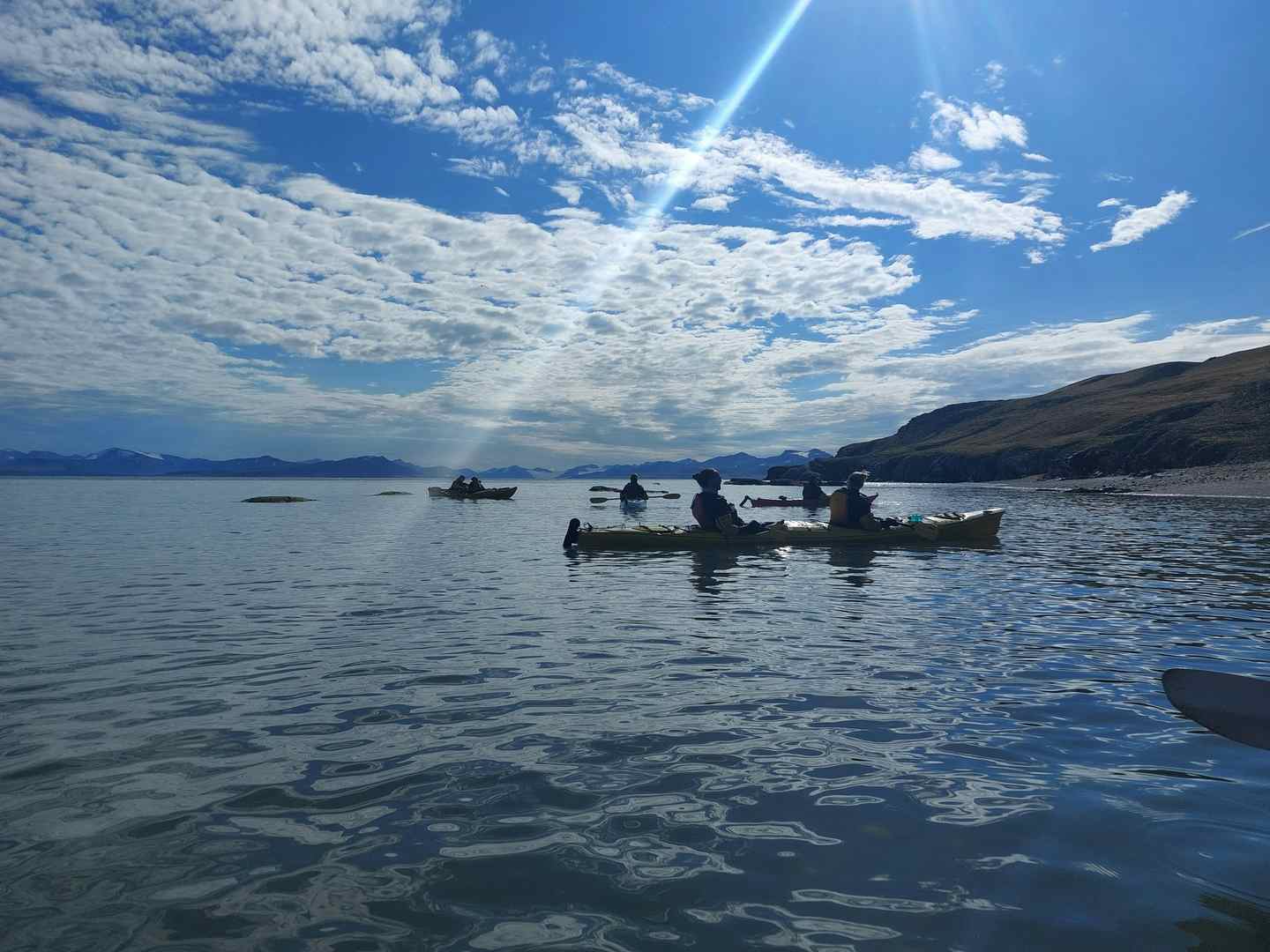
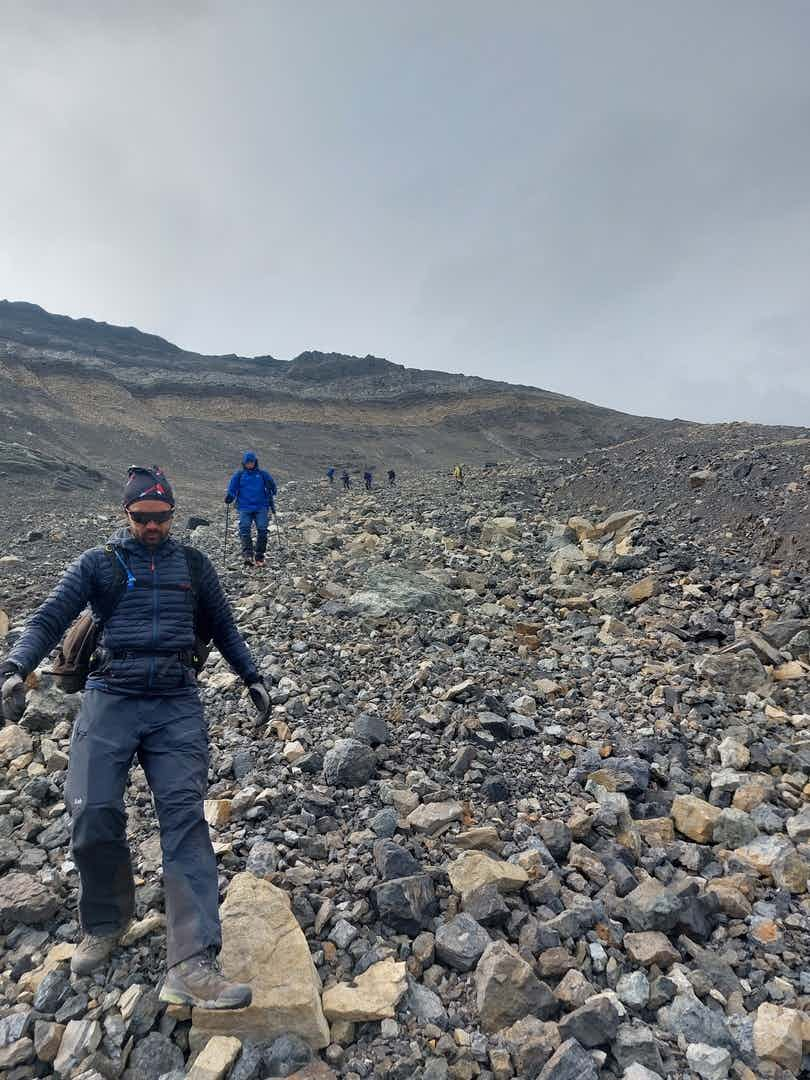
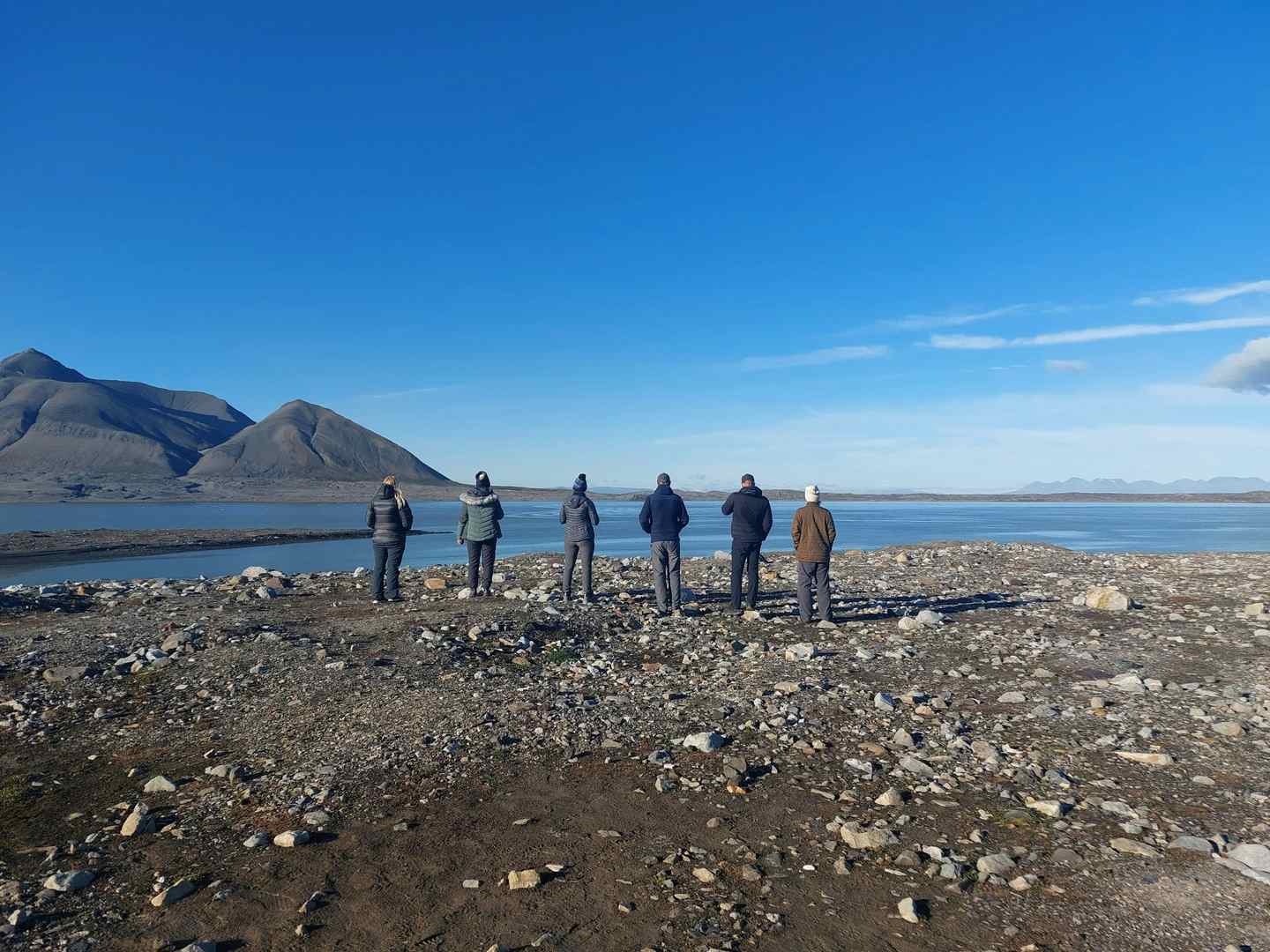
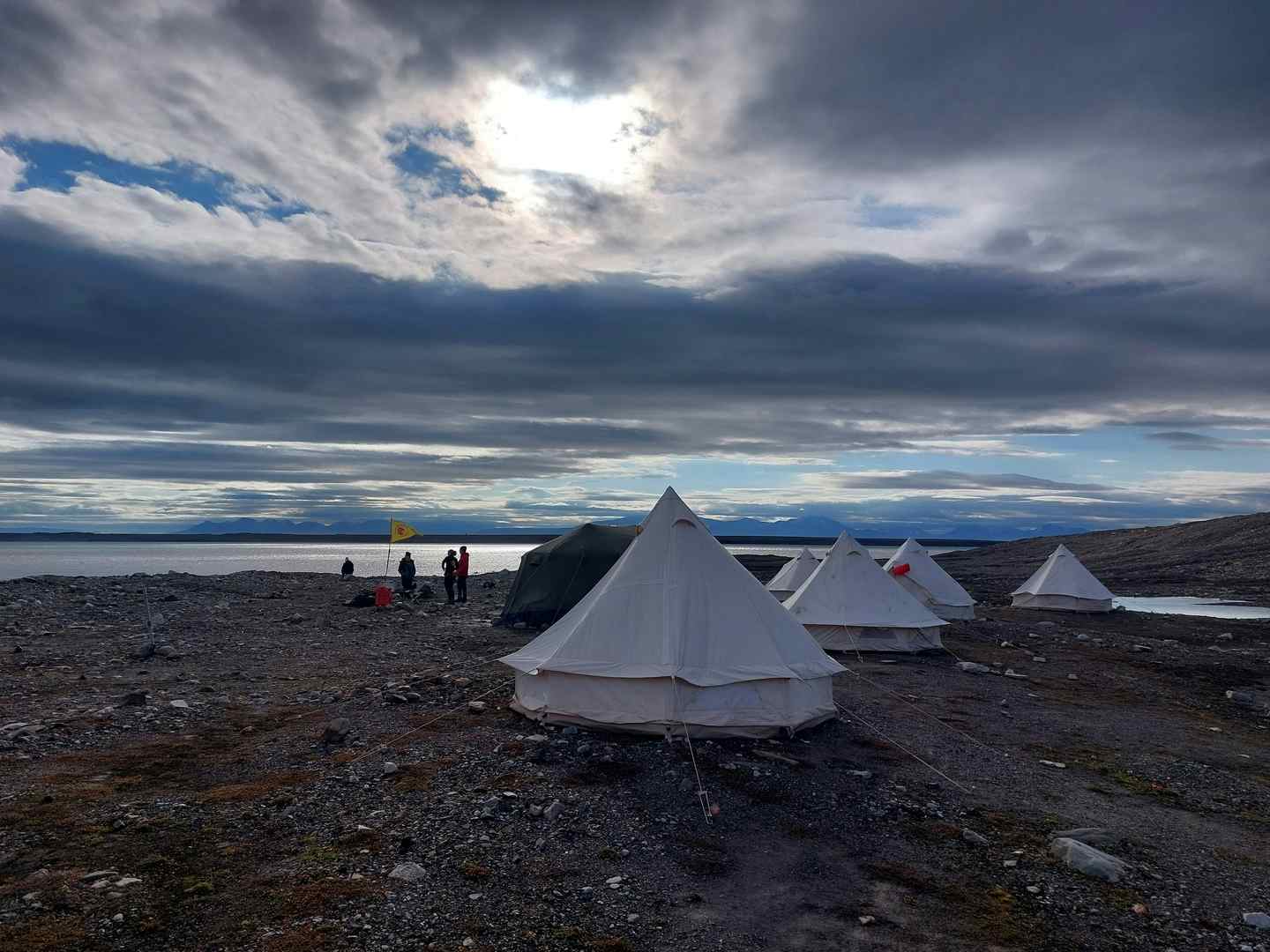
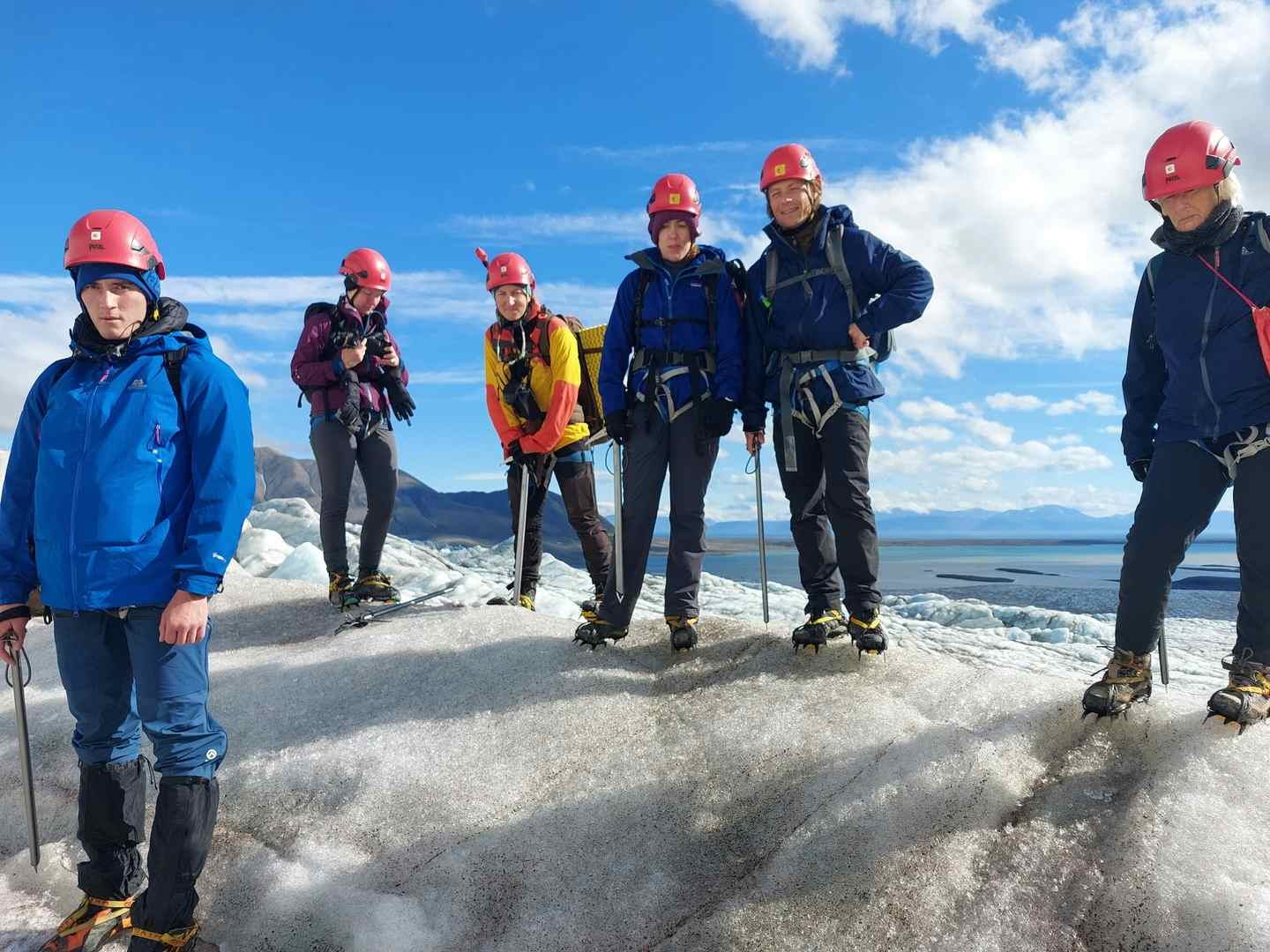
Great Fun. I've never done anything like this before and really enjoyed it. The trip is the perfect amount of time and the activities are varied. The local guides were amazing and tailored/tweaked our activities to the group. Polar Bear watch wasn't as bad as I thought it would be...and managed to get a night off because of a big group. We were well fed throughout. Highlights were climbing an Ice Wall with axes, the Polar Plunge and the hikes up mountains/glaciers.
Trip of a lifetime, would recommend to anyone. The guides provided (Nicolas and Kaisa) were absolutely fantastic, professional, passionate, knowledgeable and most importantly took our safety seriously. Was so happy when they surprised us with ice climbing on the glacier!
Itinerary Activities
- Guided hike up Sarkofagen Mountain
- Sea kayaking to the Esmark Glacier
- Experience a shift on polar bear lookout
- Glacier hiking across the Esmark Glacier
- Guided hike to the peak of Värmlandsryggen
- Guided hike to the Fuglefjella 'bird mountains'
Guides
- Expert, local, English-speaking guides
Accommodation
- 4 nights in a guesthouse
- 3 nights at a wilderness camp
Meals
- All (7) continental breakfasts
- 6 dry-pack expedition-style lunches
- 3 homemade dinners
Equipment
- All camping equipment
- All kayaking equipment
- All glacier hiking equipment
Permits
- All permits and entry fees
Our trips are hassle-free by design. We include all the activities and equipment, as well as many of the meals, so you can simply rock up with your rucksack and share the adventure with your new pals.
Travel to and from the trip
Our trips do not include flights, trains or other travel to the start point and back from the end point.
Airport transfers
This trip begins and ends at your guesthouse in Longyearbyen, so you'll need to make your own way to and from the airport – see the 'Getting There' section for more information.
Tips
Tips are not included in the trip cost; these are entirely at your discretion. If you would like to tip, the amount should be reflective of your perception of service and quality.
Personal Expenses
You know your own spending habits best, so please budget an appropriate amount for things like optional meals and drinks, shopping, optional activities, and laundry.
Travel insurance
Travel insurance is compulsory for all of our adventures and you are required to provide your policy information before departing. Your insurance should include adequate protection for overseas medical treatment, evacuation/repatriation, your baggage and equipment and the specific activities involved on your adventure. We also strongly recommend it includes cancellation and curtailment insurance, should you be unable to join your trip for specific reasons such as illness. Our recommended travel insurance provider is Campbell Irvine, as their insurance offers all of the above.
Visas
Visa requirements often change, and you are responsible for obtaining any required visas for this trip. Please check with your nearest embassy or consulate for up-to-date advice.
What's provided?
- Camping equipment (tent, sleeping mat)
- Personal glacier equipment (ice axe, crampons, ropes)
- Personal kayaking equipment (dry suit, neoprene shoes and mittens, life vest, drybag)
- Thermos flask
What's available to hire?
- Sleeping bag. See Optional Extras for pricing.
What do I need to bring?
BAGS
- Soft overnight duffel bag or rucksack (to transport your luggage from the boat to camp - approx. 200m uneven terrain)
- Daypack (35+ litres)
- Waterproof cover for rucksack, and/or an extra drybag for the hiking/kayaking
CLOTHES
- Insulated jacket (down or synthetic/PrimaLoft)
- Fleece jacket or similar
- Hardshell Gore-Tex mountain jacket with hood (breathable, windproof and waterproof)
- Gore-Tex mountain trousers (breathable, windproof and waterproof)
- Gaiters (optional)
- Thermal underwear x 3 sets (preferably wool/merino - no cotton. 1 set to sleep in)
- Woolen socks x 3 sets (no cotton)
- Buff
- Warm hat x 1-2 (for cold/windy days, and also to sleep in)
- Warm windproof mittens x 1 pair
- Warm finger gloves x 1 pair
- Underwear
- Swimwear (for the polar plunge/Arctic bath)
- Worn-in waterproof hiking boots, preferably with a stiff sole
- Light shoes or sandals to use around the camp
SLEEPING
- 2 to 3-season sleeping bag (Extreme Rating of down to about -15 degrees Celsius, Comfort Rating of about 0 to 5 degrees Celsius - see our Sleeping Bag Guide (either hire one or bring your own)
- Sleeping mat (provided, but bring your own if you prefer)
OTHER
- Binoculars (for wildlife spotting)
- Reusable water bottle x 1-litre (two if you have room)
- Thermos flask x 1-litre (provided, but bring your own if you prefer)
- Lunch box (optional - in case you prefer to prepare a sandwich at breakfast to take with you instead of eating the expedition lunch)
- Sunglasses
- High SPF suncream
- Eyemask and earplugs for sleeping
- Quick-dry towel
- Universal travel plug adapter
- Power bank or solar charger
- Camera and spare camera batteries
- Passports (and visas)
- Travel Insurance documents
- Insect repellent (optional, not generally an issue)
- Personal first-aid kit (including blister treatment)
- Personal items (biodegradable toiletries, sanitary wear etc)
- Biodegradable wet-wipes
- Energy bars and snacks (if you have special preferences - snacks will be provided)
Optional Private Room Upgrade (4 nights): prices start from
Payable Before Departure
Optional Private Room Upgrade (4 nights): prices start from
… Per person
Longyearbyen Excursion: Guided City Walk
Payable Before Departure
Longyearbyen Excursion: Guided City Walk
… Per person
Longyearbyen Excursion: Hike to Plateau Mountain (AM or PM)
Payable Before Departure
Longyearbyen Excursion: Hike to Plateau Mountain (AM or PM)
… Per person
Longyearbyen Excursion: Visit to Coal Mine No. 3 (AM or PM)
Payable Before Departure
Longyearbyen Excursion: Visit to Coal Mine No. 3 (AM or PM)
… Per person
Sleeping bag hire
Payable Before Departure
Sleeping bag hire
…
Single room: prices start from
Payable Before Departure
Single room: prices start from
… Per night
Twin/Double room: prices start from
Payable Before Departure
Twin/Double room: prices start from
… Per night
We partner with the World Land Trust to ensure this trip achieves Net-Zero emissions. We also support their Buy an Acre programme, helping local communities to buy and protect natural habitats in perpetuity.
What's the number?
It works out on average at 94kg of CO2 emissions per person, including all local transport, accommodation, food, activities, guides, staff and office operations.
The only thing it doesn’t include right now is flights and travel to the destination. We do make an overall estimate across all our customers separately, but as we don’t book flights, have customers from all corners of the world, and no way of reliably knowing their travel plans, we simply can’t include an individual number in the figure on display here. We’ve got a goal to fix that, so that when you book, there is a way to measure and mitigate the carbon emitted by your flight too.
But what does the number mean?
Yep, hard to picture eh? To give you an idea:
- Driving 1000 miles/1609km would be approximately 281kg of CO2 in an average car (or 140.5kg per person, if there were two of you in it).
- A return economy class flight between London and New York would be approximately 1619kg (1.66 tonnes) per person.
- 10 trees in a temperate forest are estimated to remove approximately 250kg of CO2 from the air in a period of 5-10 years.
What are we doing about it?
Our trips are relatively low-carbon by design, and we're working with all our hosts to develop long term carbon reduction plans. We partner with the World Land Trust to ensure this trip achieves Net-Zero emissions. We also support their Buy an Acre programme, helping local communities to buy and protect natural habitats in perpetuity, ensuring the protection of the reserve and its wildlife.
Want to know more?
Amazingly, no international travel company has ever publicly published their carbon measurements before, as far as we know. We believe that must change, quickly. So we’re openly sharing the method we used in the hope that other companies will be able to more easily follow suit and build on what we've done so far. You'll find it all here.
If you arrive early there's plenty to enjoy in Longyearbyen before your trip starts, and you can pre-book additional excursions with your host in advance (subject to availability). Please see Optional Extras (above) for the prices. These include:
- Tour of Coal Mine No. 3: Wear a miner's outfit to explore one of the tunnels, learn about the old machines, and see the entrance to the old seed bank as well as the Arctic World Archive.
- Longyearbyen Guided City Walk: Discover the remains of Longyear City, see a beautiful view of the fjord and learn about life in the remote Arctic, including the coal mining industry.
- Hike to Plateau Mountain: Hike to the viewpoint for a panorama of Longyearbyen.
In summer, you'll witness the midnight sun in Svalbard where there is daylight 24/7. This special experience also gives plenty of flexibility in terms of when you can do activities: midnight glacier hike, anyone? While polar bears, foxes, ptarmigans and reindeer inhabit Svalbard year-round, the warmer months bring an even broader diversity of wildlife and the continuous daylight hours mean a greater chance of spotting them. Migrating birds arrive in large numbers to nest, while walruses, seals and whales (attracted by nutritious meltwaters) enter the fjords of Svalbard. Open waters enable travel by boat and the chance to spot wildlife from the water. Flowers and micro-trees flourish in summer and stand in stark contrast against the rough Arctic landscape.
Sustainable tourism provides an economic incentive to protect, rather than exploit, vital wildlife areas. Over the years, seven national parks and 21 nature reserves have been created to protect the Svalbard archipelago. Thankfully, the population of polar bears and various marine species have increased and Svalbard tour operators – including your host – have worked alongside environmental groups such as the WWF and Friends of the Earth to block any unsustainable development such as new roads, mining and fossil fuel exploration. Every visitor to Svalbard also pays £15, which goes directly to an environmental protection fund to manage the protected areas.
Of course, we are aware that the flight to Svalbard is damaging to the environment and the Arctic is visibly feeling the effects of climate change. As there are currently no viable, sustainable travel alternatives available, Much Better Adventures mitigates four times the carbon emitted by your flight to Longyearbyen through our partnership with Cool Earth. The adventure itself – self-powered activities and wilderness camping – is about as low carbon as it’s possible to get, especially when compared with the myriad cruise ships that visit Svalbard.
For more on this topic you can read our article on tourism and conservation in Svalbard, where our very own Stuart Kenny interviews Arne Kristoferson, your host for this trip and a resident of Svalbard for nearly three decades.
Also, here’s how our very own co-founder Sam answered the question ‘Is it responsible?' after we launched our winter Svalbard adventure.
Each member of the group will take it in turns to lookout for polar bears while the rest of the group sleeps. It doesn't get dark in Svalbard during the summer, so lookouts are done in daylight. The experience of being on lookout is one of the most memorable parts of the trip and has been described as 'like being a crew member on a David Attenborough documentary.'
You'll be given a full briefing and safety instructions, then a shift roster will be developed between you all. Only one person is generally on lookout at a time. Lookout shifts are generally between one and two hours; however, if your group size is larger than four, you may have at least one night without needing to do one.
While on this trip you will be in the hands of expert wilderness guides. Your host has been operating wildlife expeditions in the area for over 25 years and has never had a close call with a Polar bear. This is all down to their knowledge and expertise. There are Polar bears in the area and they have come close to camp before, however, the guides know exactly what to do in all cases.
See also 'What's Plan B in case of bad weather or a Polar bear near camp?'
Over the years there have been incidents of polar bears being killed in self defence, however, your host has been running trips across Svalbard since 1993 and has never had to kill a single bear. The guides travel with flare guns to scare bears away if they get too close, and if needed will follow this up with a warning shot from a rifle in extreme situations. You should be aware that Svalbard regulations state that firearms shall be half-loaded. The wilderness camp, meanwhile, has special storage units for food so as not to entice bears towards the camp and a perimeter tripwire that activates flares if triggered.
Your guides are also expert wilderness guides, many of whom are from Svalbard itself. They have safely led adventure travellers, scientists, filmmakers from the BBC and National Geographic photographers across the region. Their knowledge and experience means they know what to do in all situations to keep both adventurers and bears safe.
Many of the negative encounters with polar bears have occurred during excursions led by less experienced guides, particularly cruise ship-based ones, who bring guests to shore but aren't fully experienced in what to do should an encounter occur.
Our local host has also created an association for Svalbard-based guides and small travel companies that developed certification for sustainability and safety, and only recommends operators who look after the adventurers, the polar bears and the wilderness.
The water in Longyearbyen is drinkable, while at the wilderness camp, the source is fresh ice water from a nearby river. This Arctic ice water is perfectly safe to drink and super refreshing!
Weather in the Arctic can have a big impact, so depending on the conditions, your guides will adjust the plan according to the weather and how the group is feeling. If conditions mean it's not possible to stick to the itinerary your guide may suggest exploring a different area, tackling an alternative hike, swapping the order of activities around, shortening the activity, or interchanging a kayaking excursion for a hike (or vice versa). This is particularly true for the days when you are at the Ymerbukta camp.
Similarly, if a polar bear is spotted near the camp, a 'Plan B' will come into play. Here, there are two scenarios:
- If a polar bear is spotted while you are already in the wilderness camp or out on an activity from camp, your guide will decide whether a change in the activities is necessary, or whether to evacuate camp altogether based on the bear’s behaviour.
- If there is a polar bear in or around camp when you arrive by boat, as per Svalbard regulations (which must always be followed) a polar bear encounter must be avoided to protect the natural habitat of the bear. Remember, this is the bear’s home, while we are only visitors. Your guide will use their expert judgement to assess the bear’s behaviour and may decide that the group will have to return to Longyearbyen. This does not happen often, but is always a possibility and normally happens at least once a year.
If practically possible and if a boat service is available, it's expected that the group would try and go to the wilderness camp the next day. If the polar bear has moved on then you can go to camp and continue as normal. However, in the rare situation that the bear is still there, you will return to Longyearbyen again and do a series of day trips. Your Svalbard host will endeavour to offer as many of the same activities as they can, but you should be prepared that it will not be possible to deliver the whole programme in these circumstances. The accommodation in Longyearbyen will be either at the guesthouse (if available for the whole group) or at a campsite close to the city.
Please bear in mind that any amendments to the itinerary due to conditions are both for your safety and your enjoyment. Bring a flexible mindset, a sense of adventure and an understanding that nature defines life in Svalbard!
You can leave any excess luggage in Longyearbyen before heading to the wilderness camp. There is storage at your hotel and also at your host's secure warehouse.
Svalbard is a cash-free society: cash is not accepted and there are no banks. Only card payments are accepted, so please ensure you bring your credit and/or debit cards with you.
This trip includes locations or elevations where conditions can be extremely cold. Daytime temperatures may drop below freezing (0°C/32°F), and nights are often significantly colder. These conditions can affect physical performance and increase the risk of exposure-related issues, such as frostbite or hypothermia.
Your guide is trained to manage these risks, adapting activity intensity and monitoring group wellbeing. However, it's important to take personal responsibility – bringing the right cold-weather gear (see Kit List), staying hydrated and well-nourished, and recognising early signs of cold stress.
We recommend assessing your personal comfort and resilience in cold environments, and consulting a medical professional if you have health conditions that may be affected. Arriving early can also help you acclimatise to the colder conditions, especially if you're coming from a much warmer climate.
Sure can! Over 70% of our travellers travel solo, it’s a great way to meet like-minded people.
Our team of Adventure Hunters co-create exclusive adventures which are run by highly vetted, specialist hosts. The trip is run by our trusted host partner in the destination. We only work with independent, local, in-destination experts who know the very best places to explore and how to stay safe. Read more information about the local teams we partner with. You’ll be introduced to the host straight after making a booking via the Much Better Adventures platform.
Much Better Adventures refer to the UK Government’s official travel advice when designing trips and monitoring trip operations. We recommend that all customers are familiar with the practical information provided on the Government’s FCDO website, where current travel advice can be found by searching for the applicable destination(s).
For customers joining this trip from other international destinations – please also read the official travel advice applicable to your country of residence/origin, as this may differ.
We recommend checking out the country-specific information and also talking to a travel nurse.
We automatically convert prices from the local currency that a host receives to your chosen currency. We update our exchange rates on a daily basis so this does mean that prices displayed on the site are subject to currency fluctuations, which is why you may see them change over time.
If you wish to change the currency you pay in, head to the bottom of the page.
All of our group adventures are specially designed for adults to enjoy as we want these adventures to bring together outdoorsy people who are truly like-minded. You must be over 18 to join one of our trips.
You're always in good company on one of our adventures.
Our trips are typically made up of a mixture of solo travellers and small groups of 2 or 3 friends, with most in their 30s-50s.
Our sociable adventures are solo-friendly by design and naturally attract outdoorsy people with a shared mindset; a love for adventure, a desire to push themselves and meet awesome, like-minded people along the way.
It’s this camaraderie that has so often turned a great adventure into a life-changing one.
Don't just take our word for it:
- 95% of people rate the group dynamics on our trips 5/5
- 90% of people recommend joining a trip to make new friends
- 75% of people have met people on our trips that they would now consider friends
See here for more info about the Much Better Adventures tribe.
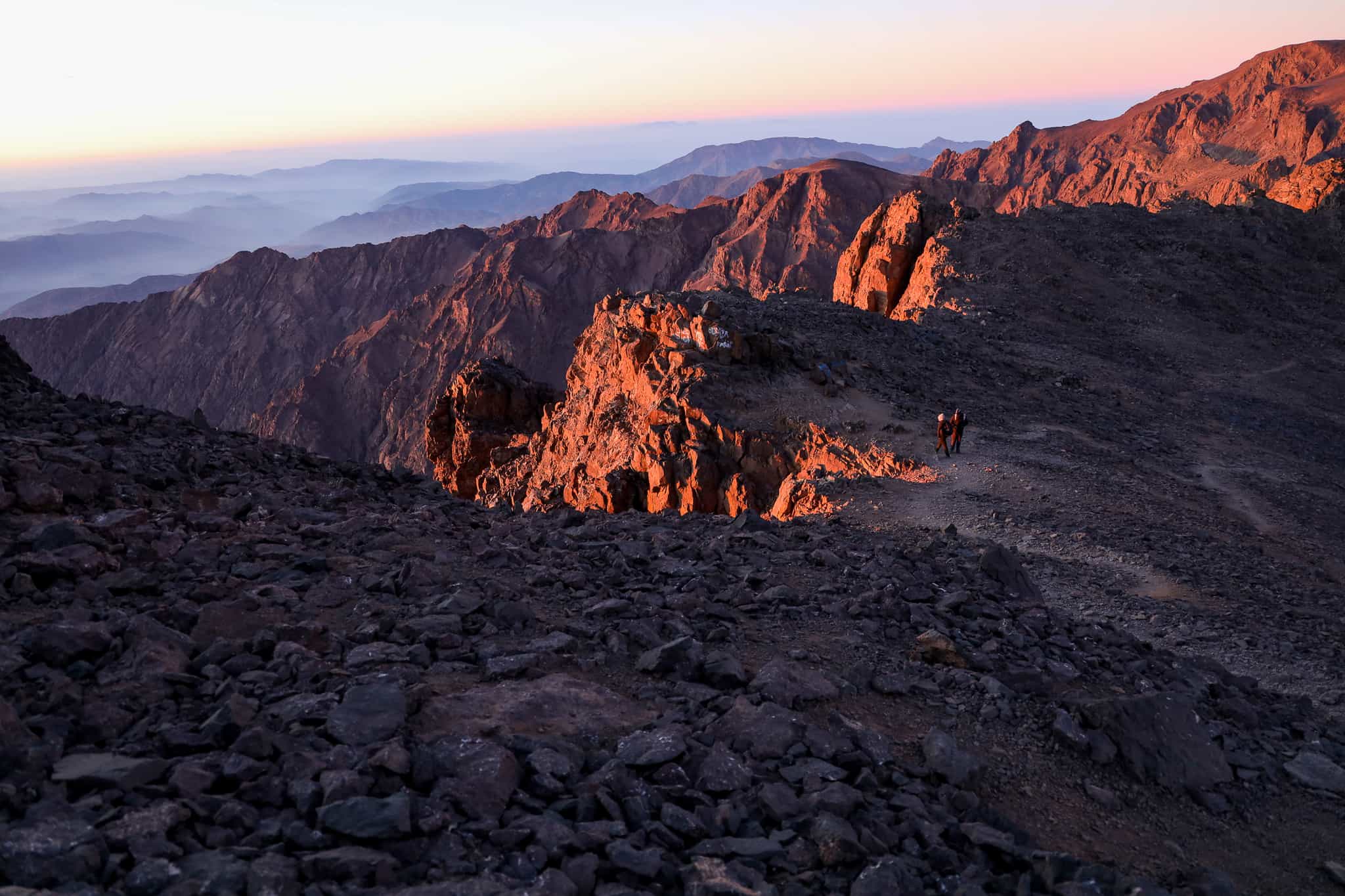

Need help finding flights?
From logistics and how to get there, to fitness, group dynamic and trip difficulty, Rory and his team of friendly experts are on hand to help.
We've got your back
Guaranteed to run
All Much Better Adventures trips are now guaranteed to run. Once you’ve booked your spot you can immediately make your travel arrangements, no uncertainty, no hanging about (excludes 'request to book' departures). Full details
Flexible payments
Secure your spot with the minimum deposit and pay off the remaining balance in as many instalments as you like, with no interest or fees. Full details
Happiness Guarantee
We’re so confident you’ll have an amazing time we’ll put our money on it. Full details
Full financial protection
To give you complete peace of mind Much Better Adventures is backed by ABTOT, ABTA and ATOL memberships. Full details
Tried & Trusted
Much Better Adventures is rated ‘Excellent’ on Trustpilot with over 1000 verified trip reviews averaging 4.8/5.
Connect before you go
You'll be invited to join a WhatsApp group to get to know each other before your big adventure together. Full details
DEPARTURE DATES
Sunday 13th July 2025
to Sunday 20th July 2025
Last Minute Offer - Next 2 spots available at 10% off





